

5 tips on writing better university assignments
Lecturer in Student Learning and Communication Development, University of Sydney
Disclosure statement
Alexandra Garcia does not work for, consult, own shares in or receive funding from any company or organisation that would benefit from this article, and has disclosed no relevant affiliations beyond their academic appointment.
University of Sydney provides funding as a member of The Conversation AU.
View all partners
University life comes with its share of challenges. One of these is writing longer assignments that require higher information, communication and critical thinking skills than what you might have been used to in high school. Here are five tips to help you get ahead.
1. Use all available sources of information
Beyond instructions and deadlines, lecturers make available an increasing number of resources. But students often overlook these.
For example, to understand how your assignment will be graded, you can examine the rubric . This is a chart indicating what you need to do to obtain a high distinction, a credit or a pass, as well as the course objectives – also known as “learning outcomes”.
Other resources include lecture recordings, reading lists, sample assignments and discussion boards. All this information is usually put together in an online platform called a learning management system (LMS). Examples include Blackboard , Moodle , Canvas and iLearn . Research shows students who use their LMS more frequently tend to obtain higher final grades.
If after scrolling through your LMS you still have questions about your assignment, you can check your lecturer’s consultation hours.
2. Take referencing seriously
Plagiarism – using somebody else’s words or ideas without attribution – is a serious offence at university. It is a form of cheating.

In many cases, though, students are unaware they have cheated. They are simply not familiar with referencing styles – such as APA , Harvard , Vancouver , Chicago , etc – or lack the skills to put the information from their sources into their own words.
To avoid making this mistake, you may approach your university’s library, which is likely to offer face-to-face workshops or online resources on referencing. Academic support units may also help with paraphrasing.
You can also use referencing management software, such as EndNote or Mendeley . You can then store your sources, retrieve citations and create reference lists with only a few clicks. For undergraduate students, Zotero has been recommended as it seems to be more user-friendly.
Using this kind of software will certainly save you time searching for and formatting references. However, you still need to become familiar with the citation style in your discipline and revise the formatting accordingly.
3. Plan before you write
If you were to build a house, you wouldn’t start by laying bricks at random. You’d start with a blueprint. Likewise, writing an academic paper requires careful planning: you need to decide the number of sections, their organisation, and the information and sources you will include in each.
Research shows students who prepare detailed outlines produce higher-quality texts. Planning will not only help you get better grades, but will also reduce the time you spend staring blankly at the screen thinking about what to write next.

During the planning stage, using programs like OneNote from Microsoft Office or Outline for Mac can make the task easier as they allow you to organise information in tabs. These bits of information can be easily rearranged for later drafting. Navigating through the tabs is also easier than scrolling through a long Word file.
4. Choose the right words
Which of these sentences is more appropriate for an assignment?
a. “This paper talks about why the planet is getting hotter”, or b. “This paper examines the causes of climate change”.
The written language used at university is more formal and technical than the language you normally use in social media or while chatting with your friends. Academic words tend to be longer and their meaning is also more precise. “Climate change” implies more than just the planet “getting hotter”.
To find the right words, you can use SkELL , which shows you the words that appear more frequently, with your search entry categorised grammatically. For example, if you enter “paper”, it will tell you it is often the subject of verbs such as “present”, “describe”, “examine” and “discuss”.
Another option is the Writefull app, which does a similar job without having to use an online browser.
5. Edit and proofread
If you’re typing the last paragraph of the assignment ten minutes before the deadline, you will be missing a very important step in the writing process: editing and proofreading your text. A 2018 study found a group of university students did significantly better in a test after incorporating the process of planning, drafting and editing in their writing.

You probably already know to check the spelling of a word if it appears underlined in red. You may even use a grammar checker such as Grammarly . However, no software to date can detect every error and it is not uncommon to be given inaccurate suggestions.
So, in addition to your choice of proofreader, you need to improve and expand your grammar knowledge. Check with the academic support services at your university if they offer any relevant courses.
Written communication is a skill that requires effort and dedication. That’s why universities are investing in support services – face-to-face workshops, individual consultations, and online courses – to help students in this process. You can also take advantage of a wide range of web-based resources such as spell checkers, vocabulary tools and referencing software – many of them free.
Improving your written communication will help you succeed at university and beyond.
- College assignments
- University study
- Writing tips
- Essay writing
- Student assessment

Research Fellow

Senior Research Fellow - Women's Health Services

Lecturer / Senior Lecturer - Marketing

Assistant Editor - 1 year cadetship

Executive Dean, Faculty of Health

A simple but effective guide to writing a perfect assignment

The idea of writing assignments can be daunting; feeling under pressure, and unsure of if you've prepared enough to tackle the question effectively. Remember it does not have to be like this; the most important thing is to start – and start early.
Starting your assignment in good time will allow you to keep looming deadline pressures down. This should help you to maintain a better headspace; which will increase your ability to focus.
Keep reading for our quick guide to writing assignments; perfect for all levels. We recommend you also read the more detailed ABE Assignment Guide document below and, of course, work closely with your ABE tutors.
1. Read the Question
This may seem like an obvious step, but it is one that is often overlooked. Many of us do not take the time to carefully read the assignment question, and instead, skim-read. This can be risky as although you may have identified some of the keywords you think are important, you need to fully understand what is being asked and what answer the examiner is looking for.
Read our guide to command words here:
It is easy to get carried away and delve into writing your assignment without really answering the question. A good way to avoid this is to take some time to consider the keywords within the question and what they are prompting you to do. Understanding directive words such as 'evaluate', 'discuss', and 'explain', are vital when writing an assignment, as they provide instruction on how you are supposed to answer the question. It is a good idea to highlight or underline these words within the question, to help you keep them in mind as you progress through your assignment.
Sometimes the question can be written in a manner that makes it appear more intimidating than it is. Once you have read (and re-read) the question, you may find that what is being asked is actually quite straightforward. You may also benefit from rewriting it in a way that you are able to process the instructions better .
2. Research & Planning
Carefully researching and planning your assignment will give you a structure to follow when it comes to writing it. Research and planning will allow you to be better prepared and could make the difference between a mediocre piece of work and an exceptional one.
This is your chance to consider any specifications for the assignment such as word count, the points you would like to include, and how it needs to be set out.
When planning the points for your assignment it is important to understand what you are working towards. You should refer to the learning outcomes and assessment criteria for the assignment to help you with this. You can find these on the assignment brief as well as within the syllabus, in your Study Guide or in the Qualification Specification document for your course.
As well as researching the topic, it is also a good idea to find good source materials to include in your assignments beforehand. It's a good idea to do wider reading from reputable sources to gain different perspectives to support your answer.
3. Structure
Before you start, it can help to create an assignment structure. This can be as detailed as you like but the basic structure should be your introduction, key arguments and points, and your planned conclusion.
Introduction
This refers to a short paragraph that explains what you are going to be discussing. It should outline your argument and reference the key issues within the question.
This is where you should focus on structuring your argument. You may need to compare or critically evaluate two or more different methods or theories to explain your choices or recommendations. Examiners are looking to see if you can analyse information and make decisions accordingly. You should make sure that your ideas and claims are supported with research when required.
- When you start to discuss a new idea, you should start another paragraph
- When using a lot of different sources for supporting evidence, it can be easy to forget to add them to your reference list. To avoid this, reference as you go along
The conclusion is your final chance to summarise what you have discussed. You should be careful not to introduce new points that you did not mention within your assignment. A good conclusion will leave a lasting impression on the examiner, so make it count.
- Recap the key points in your assignment, including supporting evidence if needed.
4. Drafting
Ask your teacher for feedback by submitting the first draft of your assignment a few weeks before the final hand-in date. This will help you improve your assignment before submitting your final version.
- Make sure it is your own work; although your teacher can give you some advice on how to improve your work, you must write the assignment yourself
5. Proofread
Editing and proofreading can help you to improve your assignment even after you’ve finished writing it. Before doing this, it is important to get some distance from your work. Taking a short break will help you to come back and check it over with fresh eyes.
When proofreading, as well as grammatical; and spelling errors; you should be checking that the structure of your assignment is clear and that you have properly addressed all of the question.
- It can often be difficult to see mistakes in your own work, if possible ask a friend or family member to proofread your assignment for you
- Refer back to the assignment objectives; have you answered the question?
- Make sure that your assignment reads well, and that you are within the word count
6. Plagiarism & Referencing
Not taking the time out to reference properly is the biggest way to lose marks on an assignment. When using books, cases and journals you must reference to show where you got your information from.
When writing ABE assignments, you should use Harvard Referencing to correctly cite information sources and include a bibliography at the end. Citations should be listed in alphabetical order by the author’s last name. If there are multiple sources by the same author, then citations are listed in order by the date of publication. Also, read the ABE Assignment Guide for more helpful information about referencing.
Using your own words, and correctly citing information sources mentioned within your assignment will help you ensure you have not committed plagiarism .
- Use anti-plagiarism software such as Quetext to check your work before submission, to pick up any risk of plagiarism. Your examiner will also be checking for plagiarism when marking; remember it’s not worth the risk – your assignment could be rejected if you get caught.
Writing assignments is something most of us cannot avoid; following these steps should make the process a lot easier.
We wish you every success. Do share any top tips of your own.
Happy writing.
Blog categories
- All blogs (36)
- Professional development (9)
- Study tips (5)
- ABE blogs (9)
- ABE way (7)
- For schools (6)
Membership offer from The Institute of Leadership
Our parent company, The Institute of Leadership (IoL) is offering ABE graduates, from Level 5 upwards, the opportunity to become an Institute Member at a price exclusively for ABE qualification holders. Read more .

- Institute of Continuing Education (ICE)
Please go to students and applicants to login
- Course search
- Courses by subject overview
- Archaeology, Landscape History and Classics
- Biological Sciences
- Business and Entrepreneurship
- Creative Writing and English Literature
- Education Studies and Teaching
- Engineering and Technology
- History overview
- Holocaust Studies
- International Relations and Global Studies
- Leadership and Coaching overview
- Coaching FAQs
- Medicine and Health Sciences
- Philosophy, Ethics and Religion
- History of Art and Visual Culture
- Undergraduate Certificates & Diplomas overview
- Postgraduate Certificates & Diplomas overview
- Applying for a Postgraduate Award
- Part-time Master's Degrees overview
- What is a Master's Degree (MSt)?
- How to apply for a Master's Degree (MSt)
- Apprenticeships
- Online Courses
- Career Accelerators overview
- Career Accelerators
- Weekend Courses overview
- Student stories
- Booking terms and conditions
- International Summer Programme overview
- Accommodation overview
- Newnham College
- Queens' College
- Selwyn College
- St Catharine's College
- Tuition and accommodation fees
- Evaluation and academic credit
- Language requirements
- Visa guidance
- Make a Donation
- Register your interest
- Creative Writing Retreats
- Gift vouchers for courses overview
- Terms and conditions
- Financial Support overview
- Concessions
- External Funding
- Ways to Pay
- Information for Students overview
- Student login and resources
- Earn your digital badge with Accredible
- Events overview
- Open Days/Weeks overview
- Master's Open Week 2023
- Postgraduate Open Day 2024
- STEM Open Week 2024
- MSt in English Language Assessment Open Session
- Undergraduate Open Day 2024
- Lectures and Talks
- Cultural events
- In Conversation with...
- International Events
- About Us overview
- Our Mission
- Our anniversary
- Academic staff
- Administrative staff
- Student stories overview
- Advanced Diploma
- Archaeology and Landscape History
- Architecture
- Classical Studies
- Creative Writing
- English Literature
- Leadership and Coaching
- Online courses
- Politics and International Studies
- Visual Culture
- Tell us your student story!
- News overview
- How to approach assignment writing
- Madingley Hall overview
- Make a donation
- Digital Credentials
- Centre for Creative Writing overview
- Creative Writing Mentoring
- BBC Short Story Awards
- Latest News
- How to find us
- The Director's Welcome
- Staff profiles
- Madingley Hall
- Centre for Creative Writing

Submitted by Carla Dobson-Pérez on Wed, 15/07/2020 - 11:58
For those new to study or returning to it for the first time in many years, writing an academic essay can be the most daunting barrier to overcome. But with good planning, it doesn’t need to be as frightening as it may seem. ICE’s expert study tutor, David Galbraith, guides us through the best way to approach an assignment.
Structuring an essay
Once you get your assignments, sub-divide your course period into the amount of time you have. So, for example, if you’re enrolled on a 12-week course and have two assignments, it may help to consider that you have six weeks for each piece of coursework.
Continuing that example, think about how you might break down that period for writing an essay or report. Most academic writing consists of an introduction, main section and conclusion. An introduction might consist of roughly 10% of your word count and therefore your time. A main section is probably around 80% while the conclusion makes up the remaining 10%. So, if you’re planning for a six-week chunk of work, that equates to a week on the introduction, a week on the conclusion and four weeks on the main body.
Deconstructing your question
When you receive an assignment topic, the first thing to do is deconstruct the question. That means highlighting keywords for emphasis so that you know how to target your reading and planning. Here’s an example:
“How far do you agree with the claim that trickle-down economics has been a core feature of Republican Party politics in the USA since the 1980s?”
Here, the key terms are “Do you agree”, “trickle-down economics”, “core feature of Republican Party politics” and “since the 1980s”. That gives you four chunks to get stuck into, as opposed to simply going at it all in one go, and means that when you turn to your reading, you’ll know what you’re looking for from the outset.
Develop a plan and check your output
A plan can be in linear form or spider diagram, it doesn’t matter. Either way, begin without doing any reading at all. Just jot down what occurs to you in a very provisional plan. And then, as you go through your reading, you can tie up those chunks with the right places to look in each book and fill out or filter out that plan accordingly. Towards the end of the process, it’s important to do a very rough plan and use it to timetable your writing thereafter. At this stage, it can just be bullet points that lead you towards your next, and eventually final, draft.
What you’re looking for from a well-written assignment can be sub-divided into a checklist of seven areas. It should:
1. Answer the question – not the one you want to answer but then one that’s been asked.
2. Identify and address key issues raised by the question and its topic area.
3. Stay relevant to the question and not waffle.
4. Be analytical and discursive rather than merely descriptive.
5. Present an argument which is logically developed throughout with effective use of evidence.
6. Display clear thought and careful planning and, ideally, some creative thinking too.
7. Be fluent and succinct with its sources fully and accurately cited.
If you’ve done those things then that’s what all the planning was for and you know you’ve done all that you can.
Right now, it’s easy to get swept up in the tension and pressure that comes with the current uncertainty. But planning in this way is all about giving yourself confidence. And don’t forget the reasons why you’re studying in the first place. Remember to enjoy it, be stimulated by the experience and understand that your tutors are right behind you.
Do you have any questions? Contact us here »
Whilst you're there, make sure that you sign up to receive emails from ICE to be kept up-to-date with courses, events and other activities here at the University of Cambridge Institute of Continuing Education.
You can unsubscribe at any time. See our privacy notice for more information on how we take care of your data.
Institute of Continuing Education Madingley Hall Madingley Cambridge CB23 8AQ
Find us Contact us
Useful information
- Jobs and other opportunities
- Gift vouchers
- Student policies
- Privacy policy
- Data protection policy
- General terms and conditions
Connect with us
© 2024 University of Cambridge
- University A-Z
- Contact the University
- Accessibility
- Freedom of information
Study at Cambridge
- Undergraduate
- Postgraduate
- International students
- Continuing education
- Executive and professional education
- Courses in education
About the University
- How the University and Colleges work
- Visiting the University
- Giving to Cambridge
Research at Cambridge
- Spotlight on...
- About research at Cambridge
- International
- We are Beckett
- Accessibility
- Accommodation
- Merchandise
- Schools and Colleges
- Skills for Learning
- Sport and Active Lifestyles
- Student information
- Students' Union
- Teaching and Learning Resources
- (+44) 113 812 0000
- Other contact numbers
Leeds Beckett University - City Campus, Woodhouse Lane, LS1 3HE
- Undergraduate study
- Postgraduate study
- Distance learning
- Student experience
- Chat with current students
- Degree apprenticeships
- CPD and short courses
- Information for students and applicants
- Careers support
- Stay in touch
- How to apply
- Funding your studies
- Prepare for uni
Student Blog Squad
- Chat to a student
- Mature students
- Parents' guide
- Schools and colleges
Undergraduate Applicant Days
Undergraduate open days, virtual open day.
- Research degrees
- Professional development
Postgraduate Open Days
- Information for employers
- Sport and active lifestyles
- Leeds Beckett Students' Union
Life in Leeds
Virtual campus tour.
- Apply to study
- Fees and scholarships
- Support for students
- International partners
- International Summer School
- English language courses
- Study abroad
- Find your country for entry requirements
- English language requirements
- Find an agent in your country
- Applying for your visa
- Course fees and living costs
- International scholarships
- Global Village
- Arrival guide
- International Partners
- Study Abroad Partners
- Research centres
- Research Areas
- Research Excellence Framework
- Teaching and research facilities
- Research for business
- Carnegie Applied Rugby Research centre
- Centre for Active Lifestyles
- Centre for Applied Social Research
- Centre for Biomedical Science Research
- Centre for Child and Adolescent Physical Literacy
- Centre for Culture and Humanities
- Centre for Dementia Research
- Centre for Entrepreneurship and Knowledge Exchange
- Centre for Health Promotion
- Centre for Human Performance
- Centre for Interdisciplinary Research in Citizenship, Education and Society (CIRCES)
- Centre for LGBTQ+ Inclusion in Education
- CollectivED: The Centre for Coaching, Mentoring & Professional Learning (in education)
- Centre for Psychological Research
- Centre for Race, Education and Decoloniality
- Centre for Research in Computer Science and Applications
- Centre for Social Justice in Sport and Society
- Centre for Sport Coaching
- Centre of Excellence for Mental Health in Schools
- Cybercrime and Security Innovation Centre
- Interdisciplinary Centre for Implant Research
- Leeds Arts Research Centre
- Leeds Sustainability Institute
- Obesity Institute
The Retail Institute
- Story Makers Company
- Sustainable Business Research Institute
- Architecture
- Computer science
- Culture and the arts
- Events, Tourism and Hospitality Management
- Social Sciences
- The Graduate School
- Types of research degrees
- Funded studentships
- Doctoral funding
- Our university
- Our schools
- Our community
- Work with us
- Sustainability
- Contact and find us
- Campuses and facilities
- Equality and inclusion
- Governance, leadership and structure
- Public information
- Leeds School of Arts
- School of Built Environment, Engineering and Computing
- Leeds Business School
- Carnegie School of Education
- School of Events, Tourism and Hospitality Management
- School of Health
- School of Humanities and Social Sciences
- Leeds Law School
- Carnegie School of Sport
- LBU Together blog
- Support. Report. Respect. A safe and inclusive community
- University Mental Health Charter
- WE CHALLENGE - the big issues affecting people and planet
- Schools and colleges outreach
- Business services
- Business consultancy
- Recruit our students
Work at Leeds Beckett
- Develop your business
- Develop your people
- Work with our students and graduates
- Leeds Beckett Business Centre
- The Knowledge Exchange
- Business news
- Get funded and innovate
- Office space, networking and mentoring
- Support for small and medium-sized businesses
- Tap into new research and insights
Help to Grow: Management
Knowledge transfer partnerships (ktps).
- Short courses and CPD
Carnegie Great Outdoors
The leadership centre, manage your preferences.
The Leeds Beckett website is designed to enable you to manage your own privacy preferences. By clicking on 'Cookies' below you can manage what data the site collects about your browsing. This will only maintain if you are on your own device or using a synched version of your chosen browser. If you are using a shared or public machine without synching your browser then there is no need to change the preferences.
Our site is built with accessibility in mind and we seek to adhere to the WACG AA levels of compliance for digital accessibility. To support that we have provided instructions on managing animations below.
Necessary cookies enable you to use all the different parts of leedsbeckett.ac.uk. Without them services that you have asked for cannot be provided. Necessary cookies can only be disabled by changing your browser preferences.
Analytical cookies help us understand how people are using our websites, so we can improve them and provide a better user experience. We also sometimes get our approved partner companies to analyse how people are using Leeds Beckett Websites and they may set their own analytical cookies in order to do this.
Marketing cookies allow us to provide you with online adverts that are the most relevant and useful for you.
For more information please view our Privacy Policy
Animations & Interaction
The Leeds Beckett University website occasionally uses animations to page elements and animated gifs to add impact to pages. If you wish to stop them from playing for accessibility purposes or for personal preference then please see the guidance below. Please note that browsers sometimes change how they operate, so please refer to your browser help files to find their latest information.
How do I turn off animations?
Chrome users will need to use browser extensions. Animation Policy from Google will help you set your own preferences.
Microsoft Edge
There is currently no way to disable animations within Microsoft Edge. Users of Edge (Chromium) browser can install the Chrome extensions above and use them.
Internet Explorer
To stop animations on a single page you can just press the 'Esc' key. This will stop the animation on that page. If you wish to restart the animations you need to refresh the page. To permanently disable the playing of animated GIF images, open Internet Options > Advanced tab. Under the Multimedia section, uncheck the Play animations in webpage check-box, click Apply and Exit and then restart your computer.
Type about:config in Firefox address bar and hit Enter to open Settings. Search for the image.animation_mode flag and change its value from Normal to None. Once you restart Firefox this will disable animations.
Ten top tips for the perfect assignment
***Please see our updated version of this blog ***
Leeds Beckett Academic Librarian Ellie Clement gives us her top 10 tips for writing the perfect assignment.
1. Understand the question
What are you being asked to do? How are you being asked to present it? Assignments come in all shapes and sizes. The understanding assignment questions worksheet of the Skills for Learning website explains further. If you don’t understand anything ask your lecturer for clarification now, rather than two days before the deadline.
2. Plan your time
How much time have you got? What else do you have to do? Use the assignment calculator to plan your study Think about the amount of time you'll need at the hand-in deadline. Most of your assignments will be submitted online so check that you understand how to do this via Turnitin .
3. Think about what do you already know about the topic
Review the content from your lecture slides on MyBeckett. Get to know the vocabulary. Start to think about what else you need to know. Search for information on Discover and take a look at the online guides put together by your Academic Librarian.
4. Don't avoid essential reading
Make sure you've completed the readings for the topic. You can find your reading lists alongside your modules in MyBeckett and filter for Essential and Recommended texts. Learn when to skim and scan for key points and read deeply for content.
5. Take effective notes
Learn how to make effective notes from your lectures and reading. Include full details of where you found each piece of information to make citing and referencing easy.
6. Plan your structure
Use the introduction to explain your structure, and the conclusion to draw the threads of your argument together. Use the sections of the Skills for Learning website, for example essay writing or report writing to help you plan the structure for written work. There's guidance on structure if you need to deliver a presentation or write reflectively too. And try using the Academic Writing Checklist to make sure you've thought about all the things that make quality academic writing.
7. Reference correctly
Include citations in the text and a reference list at the end of your work using the Harvard style (or the style required by your School). Get yourself a copy of Quote Unquote - our guide to Harvard Referencing. As well as the free PDF/online version print copies area available from the Leeds Beckett Online Store.
8. Have a break
As you gave yourself enough time to complete your work you can walk away from it, reflect on what is good and what you may need to improve.
9. Review and Reflect
Make sure you edit and proofread your work before you hand it in. And return to it after you get your marks. Use your feedback to see what you can learn for your next assignment.
10. Ask for help if you need it
And of course, if you need help please ask for it. Library IT support is available 24/7 if you are having any technical issues and you can also use the information on the library and Skills for Learning websites or make an appointment with an Academic Librarian or Academic Skills Advisor for more in depth help. There is also lots of extra support for disabled and dyslexic students and students on distance learning courses .
You can also listen to a podcast with Academic Skills Tutors, Laura Key and Miles Mitchard discussing these top tips.
- Academic Skills
- Assignments
- Academic Librarians
Library Academic Support Team Manager", "label": ""}' href="https://www.leedsbeckett.ac.uk/staff/ellie-clement/"> Ellie Clement
More from the blog, graduating this year" }'> graduating this year, exams and timed assessments" }'> exams and timed assessments, exams and assignment support from library and student services" }'> exams and assignment support from library and student services.
This website uses cookies to improve your browsing experience. See our Privacy policy .
Find your country
Middle East
North America
Can't find your country in our list?

University Library Services
Study skills- academic writing.
- Academic Register
- Assignment Planning
Introduction to Assignment Planning
An important part of assignment planning is giving yourself time to plan, write and edit your assignments. This may involve setting your own personal deadlines and trying out different planning methods to see what works for you.
Assignment Planning should be viewed as any other skill - which takes time to develop. Being organised and maintaining focus are essential to successful planning. Before commencing any task consider how good is my preparation for assignments and tasks?
- Understand the question/theme of the assignment?
- Plan effectively?
- Source a range of relevant resources to read and refer to?
- Apply criticality throughout?
- Manage my timescale effectively?
Understand the Question and/or Theme of the Assignment.
Ensure you have read and reread the brief - are there any words/terms/ phrases you need to clarify?
Identify the learning outcomes and assessment criteria – how will they be achieved?
Has the tutor given any more information/ instruction to be included? Have you incorporated it?
As a rule, academic work should have an introduction, main body and conclusion. This is usually split at 10% - 80% - 10%. So, as an example a 2,500-word assignment will have 250 words allocated for the Introduction and Conclusion with 2,000 words remaining for the main body (+-10% allowance).
Once you have all the information and know what to include, you should begin to plan the content and structure of the assignment. For some, this may begin with a mind map of ideas and content links. This should then be structured more formally into a linear plan, with a logical flow from section to section. You should have a clear purpose to each section/paragraph, knowing exactly what your text will cover. Here, a useful tip is to jot down on your plan the actual point of the sentence. Once written, you can look back and check that you have done what you intended to. This helps you keep on track.
Here again, at the planning stage you should be clear as to how many words each section/paragraph is allocated. Knowing this, will help you keep a clearer focus on what you must do, and the information you need to source to be able to address this.
Why not watch the video below to develop your understanding of assignment questions. This is the first stage in planning.
- Assignment Planner Template Essay plan template
Planning Resources
- Games and Quizzes
- Froggy Jumps Academic Planning Game Test your knowledge to get Froggy across the pond!
Learning Strategies Center Cornell (2019) What are cornell notes? Available at: https://www.youtube.com/watch?v=HEsBd_Rgzfs (Accessed: 15 December 2023).
Leeds University Library (2023) Planning your assignment . Available at: https://www.youtube.com/watch?v=wa-R9LuYxqA (Accessed: 15 December 2023).
Newcastle University Library (2020) Notetaking: some key points to remember . Available at: https://www.youtube.com/watch?v=7EJ1OaSjwKI (Accessed: 15 December 2023).
Salter, J. (2017) Understanding assignment words . Available at: https://www.youtube.com/watch?v=XVuP8VyKZvo (Accessed: 15 December 2023).
- Last Updated: May 7, 2024 10:51 AM
- URL: https://libraryguides.sunderland.ac.uk/academic-writing

Understanding the Assignment: Writing
- The Tension
- The Question
Overview of understanding the assignment
So you have been given an essay title: now what? Many writers move straight from reading the assignment prompt to paddling around in a swimming pool of bewildered dread. If that's you, please hop out of the dread-pool and inhale. It's going to be okay!
Getting to grips with the expectations for an assignment can take a lot of back-and-forth: read the prompt or title; jot down some ideas; take a walk; revisit the prompt to highlight key phrases; read a couple journal articles; and so on. Please don't expect to read the essay title and immediately sit down to write a focused rough draft. That's not how writing works.
That said, there are organised approaches you can deploy when you don't get what you're supposed to do. Stick with this guide to discover quick activities that will help you lay a productive foundation.
Guide contents
The tabs of this guide will support you in unpicking assignment prompts and learning what to do with them. The sections are organised as follows:
- The Verb - Begin breaking down the essay title, and get to grips with what you are actually meant to do .
- The Tension - Identify the zone of uncertainty where ideas start to take shape.
- The Question - Use question-based tactics to begin moving from essay title to essay plan.
- The Scope - Learn why instructors love to assign essay titles that feel totally mismatched to the word count limits, and how to navigate this.
What's the verb?
Highlighting key words in the essay title or assignment brief is a great first step in understanding the assignment. Among those words, make sure you pay close attention to the verb – that is, the action word that indicates what you are expected to do . Consider this example:
" Critically evaluate whether the Magna Carta is still relevant today."
To evaluate , you reach a conclusion about a topic by considering evidence that supports different positions on, or perspectives about, that topic. The adverb critically emphasizes the need not only to explore a range of evidence, but to assess it in an argumentative (rather than simply descriptive) manner.
What if we slightly amend the verb? Consider this change:
" Critically discuss whether the Magna Carta is still relevant today."
Does changing the verb from evaluate to discuss meaningfully change your goal? To be honest, most instructors use these verbs interchangeably in essay briefs. For some, though, discuss would suggest greater emphasis on forging a dialogue between sources, demonstrating where perspectives align and where they diverge.
Importantly, the expectation to be critical exists with essay verbs like discuss, evaluate, analyse, examine , etc. even if the adverb critically isn’t used. Unless you are specifically asked to summarise or describe something in an objective way, criticality is key.
The likely suspects
Instructors describe assignment aims in any number of ways, but there tends to be shared language when it comes to the key verbs. Below, you will find a sampling of the most common "actions" to conduct as a writer, with explanations and tips to help you out.
Advise, suggest, recommend, propose
- With verbs like these, you need to use informed logic and relevant supporting evidence to put forward an approach, idea, solution, or similar. For example, you might propose a specific treatment protocol based on critically synthesizing a patient's case history, NHS guidelines, and evidence from medical journals. You might recommend a specific advertising approach based on a company's financial goals, their target consumers, and marketing research.
- When asked to suggest a path forward, don't sit on the fence : it would be unwise to list a variety of options without critically and clearly "backing" one of them. However, it does demonstrate good critical thought to address any shortcomings or risks in your proposal, and how these might be mitigated.
Analyse, examine
- Here, you are being asked to break something down and consider its parts . This requires close critical attention.
- Imagine your topic as a cube. Instead of standing back and saying, "That's a cube," you will take the cube into your hands and rotate it again and again, carefully investigating each of its facets.
- For example, to analyse a business model, you would break the model down into its parts (e.g. management, target clients, production, distribution, etc.) and "dig into" those. Depending on the scope of the assignment, you might need to further break down the parts you identify.
Assess, appraise, evaluate
- Here, you are being asked to reach conclusions about the validity, efficacy, reliability, impacts, etc. of something. That "something" could be a piece of academic literature (e.g. critical appraisals of medical studies). It might be a policy, law, or similar (e.g. assessment of a judicial change intended to reduce crime). Maybe it's a business campaign or financial restructure – many options exist!
- In any case, ensure you understand not only what you are meant to assess (the object), but how that object is best evaluated in your field (the approach/method). Are there industry standards that govern "success"? Do you need to use a particular appraisal tool that features set steps?
Compare, contrast
- C ompare suggests the need to find the similarities and differences between two things; contrast calls for you to compare two things with more attention paid to differences.
- Instructors will almost never ask you to compare/contrast in a merely descriptive way, so look for the next step: what are you expected to do with , or make of , the comparison(s)? For example, you might contrast two interpretations of a cultural artefact in order to analyse how and why the differences exist.
Defend, argue, make an argument
- These verbs call for you to back a stance or perspective . You should focus on making clear claims and offering solid academic evidence to support them.
- When you have to argue a point, don't forget to engage with counterarguments. Think of it this way: your instructor KNOWS that multiple perspectives exist, or they wouldn't have assigned the essay! Actively grappling with any counterarguments (and conceding minor points as needed) boosts the sense that a) you are trustworthy, and b) you conducted balanced research.
Discuss, explore
- These verbs are worryingly vague, but don't fret. Discuss and explore imply that you should consider the topic from more than one angle, using academic literature to capture multiple perspectives.
- Hint: if you pretend the assignment says analyse , instead, this tends to produce what the instructor was hoping for.
Outline, delineate
- The goal with these verbs is to identify the main beats of something. For example, if you are asked to "outline the political strategy used by Politician ABC in Election XYZ," make sure you communicate the primary components or elements of the overall strategy. Imagine boiling the whole strategy down into a TL;DR version .
- As with compare/contrast, you should look out for an additional step or expectation that takes the assignment from descriptive to critical . For example, you might have to delineate a diagnostic procedure in order to critically reflect on its relevance to your nursing practice.
Reflect, write a critical reflection/account
- The assignment verbs can get redundant, but reflect is its own beast. Unlike most essays, reflective assignments prioritise your own relevant experience . Project work, for example, may culminate in a reflective component (i.e., reflecting on how a business presentation went; reflecting on the process of creating a video game).
- Although reflection centres something you completed or did, avoid relying on biased feelings and personal opinion: this is still academic writing!
- Think of it as a reflective analysis . Break the subject down into parts: namely, decisions you made along the way, why you made them, their effects (good, bad, or neutral), and what you learned . Justify the "why" with evidence relevant to your field. In nursing, tying your actions to best practices from NHS guidelines would make sense. In a creative writing module, you might cite craft manuals when discussing your approach to backstory and dialogue.
Synthesize, "use a range of literature to..."
- To synthesize means to create a new thing by combining parts of other things. For example, you are synthesizing if you write a paragraph that defines "influencer" by weaving together how the concept has been defined in two academic articles, in a digital newspaper, and on social media platforms. Synthesis demonstrates your ability to draw relevant connections between multiple sources of information.
- Synthesis is the heart of academic writing . Odds are that you ought to be synthesizing ideas, facts, and data from different sources even if the assignment prompt doesn't use this term.
- As with compare/contrast and outline/delineate, look for additional cues on how to use your synthesis . Are you meant to synthesize in order to defend an argument, support a reflective account, etc.?
What's the tension?
With any essay title you receive, you'll notice that some tension or uncertainty exists at the heart of it. It would be rare (and pointless!) for an instructor to assign an essay title that has one clear answer. Consider this invented essay question:
"How many people own houseplants in the UK now compared to pre-COVID?"
This is a terrible essay title because it is flat. There is nothing to explore or think through critically: just the expectation to provide the pre-pandemic number, find the post-pandemic number, and...then what? There is no tension.
Now, consider this essay question:
“Analyse the rising popularity of houseplants that began in the UK during the pandemic.”
This is a better essay prompt because it leaves room for the writer to discover and develop an angle. The question itself begets more questions. For example, what factors (social, personal, economic, etc.) influenced this change? Did popularity shift across all demographics or just some (and which, and why)? In other words, this question reveals layers of uncertainty that you can dig into as a writer.
Let’s return to examine the tension in an earlier essay prompt:
“Critically evaluate whether the Magna Carta is still relevant today .”
The word still suggests potential change over time, and there we discover a tension between the past and present. The writer will need to closely consider if/how the Magna Carta (i.e., a legal document of the past ) translates or applies to contemporary society (i.e., the present ).
If you are still struggling to identify the tension in an essay title, turning it into a question can help. We'll explore that trick in the next tab of this guide.
Can you turn the statement into a question?
Instructors often use statements as essay titles. Keep the required title when you submit, of course, but as you plan your approach to the essay, it often helps to reformat the statement as a question for yourself. Returning to our now familiar example…
“Critically evaluate whether the Magna Carta is still relevant today.”
This could be posed in question form as the following:
“ Is the Magna Carta still relevant today?”
This slight change gives you something more tangible to focus on since, by nature, questions spark the mind to begin contemplating answers . You can also play with more specific variations of the questions you form to get your ideas flowing:
“Is the Magna Carta still relevant today, and if so, how ?”
" Which tenets of the Magna Carta are still relevant today? How can the relevance of those tenets be proven ?”
" What factors or qualities make the Magna Carta less relevant today?”
As you can see, framing and reframing such questions in new ways lays the groundwork for you to truly dig in and analyse the situation as a writer.
What if it's already a question?
If the assignment prompt is already in question form, you can still build it out with relevant questions to help you think through your writing strategy and potential content. For example, let's say this is the essay question:
"How do a nurse's communication practices influence trust when treating gender-diverse patients?"
Try putting this central question at the centre of a mind map, then adding branches for questions that help you dig in. You can also use a bulleted list to try this out, as so:
- "What kinds of literature could I use to unpack and define this?"
- "And why is 'trust' imperative? What risks exist when trust is absent?"
- "And how might negative/damaging 'influence' arise?"
- "Do LGBTQ+ groups and medical literature define this differently?"
- "What could make 'communication practices' more inclusive of gender-diverse patients?"
Note that each grouping of questions expands on keywords from the original question. By interrogating the question itself with further questions, you can really get the ball rolling! This will help you develop an initial sense of the research you need to conduct and points that might be relevant to make.
Can you narrow the scope?
By design, most assignment titles give you a great deal of breadth or scope . The seeming bigness of an assignment can be daunting: you might panic and ask yourself, “How in the world am I supposed to discuss ALL OF THIS in just 2,000 words?!”
The short answer? You likely aren’t supposed to discuss all of it, so take a deep breath! When the essay title is broad, instructors generally expect you to narrow the scope of your response. This means you limit your evaluation in some manner, finding one “angle” of exploration amongst the many options that exist. Let's return to our old title friend:
Okay, the Magna Carta is a very long, significant document. So if you're responding to this title, your essay will lack depth and feel rushed if you try to evaluate whether EVERY aspect of the Magna Carta is relevant in EVERY way in EVERY place, today. Instead, you can narrow the scope by doing things like…
- Focusing on a specific clause or a couple related clauses of the Magna Carta (i.e., not the whole document);
- Limiting the evaluation of relevance to a specific legal area, such as criminal court or land rights (i.e., not the entirety of LAW).
The way you choose to narrow the scope will vary according to the essay and field. Analysing a situation through one theoretical lens might sufficiently limit the scope: for example, analysing a poem using ecocritical theory rather than analysing the poem "in general." In other cases, the narrowing might relate to the evidence bank you choose to use, the demographic/population discussed, a tool or model used, etc.
Once you have found your angle, remember to use your introduction to clearly communicate your focus and argument (see our Crafting the Introduction guide for tips on thesis statements, aim statements, and essay maps).

- Last Updated: Jan 8, 2024 10:09 AM
- URL: https://library.soton.ac.uk/understanding_assignments
Assignment Bro

7 Pro Tips: How to Do Assignments in UK Universities
When a student is studying in any of the UK Universities, they know how difficult it gets under high surveillance of the educators where they conduct assignments, quizzes, presentations, and many other activities that could prepare the students for their successful future. Knowing how to do assignments is crucial in this process, as assignments serve as a source of keeping check and balance, ensuring that everyone understands the course material and can make their academic career successful.
Getting into your dream university in the UK is a big deal and if you have passed that level then there are other obstacles that you need to be prepared for the most important is assignment writing, students are always asking for assignment help Bristol because it requires a lot of hard work and sharp strategies, but guess what? You don’t need to be worried anymore.
In this blog, you are going to find out the 7 pro tips and tricks to do your assignments effectively. Stay tuned!
Achieve Academic Success: Effective Assignment Management
Your academic career depends more on your assignment management rather than the assignments themselves and to be successful in it you need to focus on how to do it effectively, here are the key points that show how assignments are useful for the growth of students in their Universities.
Efficiency in time:
When you start managing your assignments efficiently, this will help you improve in every aspect especially when your time is spent productively completing your work and tasks on time meeting all the deadlines, it lets you leave procrastination.
Understanding expectations:
Knowing how to do assignments will let you understand what the professor’s expectations are because you will be reading all the guidelines and crafting your assignments accordingly , it will also provide you clarity making it easier to attempt them efficiently.
Minimizing stress:
Planning assignments will give you the leverage to be ahead of time reducing stress levels so the students can make their assignments with a clear and burden-free mind which will help them produce quality content without hesitation and without looking at the clock all the time.
Learning enhancement:
Students who plan and manage their assignments are more likely to learn more because this process includes breaking down the tasks into more doable ones so that students don’t get burnt out all at once and ruin their work or content.
Elevate time management:
Time management skills are not just for the student life if you learn it once from managing assignments then it will help you throughout your life and you won’t need to ask “ do my assignment for me ” from anyone. Students will be able to learn to recognize the prioritizing tasks and efficiently attempt them managing the others accordingly and doing everything on time.
Enhance positive impact:
When you are able to achieve all the tasks on time without any delay and properly manage the entire academic assignments the impact on the professors will be great and a student will be able to make a positive academic reputation which can take you to places and be able to get collaborations and mentorship options.
Long-term success:
All these habits while learning and managing assignments effectively would lead to getting you skills that would let you enjoy not only your academic life in University but in daily life matters as well, providing you with a long-term solution for all your difficulties.
Pro Tips: What University Students should do to craft a successful assignment?
Every UK University student should focus on making assignments that could grab the professor’s attention every time, doing that is not an easy task it has to be crafted with excellence. Following are the top 7 pro tips and tricks a student can adopt in their academic life to make their lives easier and doing assignments more fun.
- You need to build a calendar mindset that could work round the clock, you can use digital tools as well to manage your time and according to that plan follow a routine.
- Don’t make all the tasks your priority when figuring out how to do assignments in UK universities. Focus on the nearest deadline first, then tackle the others strategically.
- Focus on the requirements know how to do assignments and make sure you have done all of them for a research paper you would need to do a literature review, data collection, analysis, etc.
- Distribute your time with the intensity of an assignment, if it requires more time manage it and prepare for it earlier so that you don’t have to get stressed out at the last moment.
- Students should experiment with all different techniques to study or do their assignments like the Pomodoro Technique, time blocking, or the Eisenhower Matrix, etc.
- Always make sure you are daily reminding yourself of your plans and reflecting on your procedures and the work you have done so far.
- Be updated all the time with your assignments and their timelines so you don’t miss anything at all.
Wrapping it up:
Life is unpredictable so is the student’s academic life especially when they are indulged in University levels, they have to do more and put more effort in order to get the results they want. Most of them are always tensed about their tasks and always in the question of how to do assignments as they can’t find ways to cope with the overwhelming scenario. The above guide will let all the students get their feet stable in their academia and through learning these skills they will help them on long-term bases.
Related Post
A complete guide to writing the best assignment for a+ grade, leave a reply cancel reply.
Your email address will not be published. Required fields are marked *
Save my name, email, and website in this browser for the next time I comment.

- How It Works
- How to Elevate Your Academic Success Through Ex...
- Mastering Assignment Writing: Your Ultimate Gui...
- Unlock Your Academic Potential: Affordable Assi...
- 9 Easy Steps: How to Write a Good Essay - Top E...
- Paying for Analytical Essay Help: Expert Tips &...
- How Professional Editing Can Elevate Your Acade...
- Mastering Assignment Writing: Tips for Academic...
- Brighton and Hove
- Southampton
- Stoke-on-Trent
- Wolverhampton
- Resources General Guides Portal Help

All Guides | UK Assignments – Guides

Did you know? Less than 30% of students who submit an application to pursue a PhD course in the UK get accepted? So, the probability of not being accepted to do a PhD programme is stacked against by more than 70%.

Struggling with Your Essays? Let UK-Assignments.com Expert Writers Help You!
Have you got stuck whilst writing your essay? Are you searching for essay writing help from the experts?
Looking for an essay assignment writing service that conforms to the standards and instructions may be easy to find, but if you are in search of a strictly delivered finished product on time, this is a different thing entirely.

The Ultimate Guide to Choosing the Best Critical Thinking Assignment Writing Service
Critical thinking writing refers to philosophical reasoning in reference to an individual’s beliefs and perceptions.
This style of writing is often a significant component of most occupations and professions. It can be considered to an essential part of formal education that is significant for university students and other scholars to go through owing to graduation.

Enhancing Your Dissertation Writing Style: Tips and Tricks
Writing a dissertation can be a daunting task, but it is essential to produce a well-written and high-quality dissertation to obtain your degree. One of the key aspects of dissertation writing is the writing style used. A well-crafted and polished dissertation not only demonstrates your research skills but also your writing style.


Unlock Your Academic Potential: Expert Assignment Writing Services at UK-Assignments.com
Why Pay Someone to do my Creative Writing Essay for Me? The demand for being creative in your writing has been increasing globally. Students often find themselves in a tight situation as most students are not adept at creative writing. When faced with such problems, students are in desperate need of creative writing ideas.
Achieve Excellence with Expert Assignment Writing Services
Writing a cover letter sometimes poses a challenging task for students and other job seekers. At UK-Assignments.com, we can help alleviate your stress by accessing UK-Assignments.com quality cover letter examples that suit your area of education or job search.

Expert Assignment Writing: Your Key to Academic Success in the UK
Literature Help Service Running out of time to complete your coursework assignments? Stressed with part-time jobs, and managing your time? UK-Assignments are here to take the stress away for you.
Unlocking Academic Success: Why Expert Assignment Writing is Essential
It is a common story all over the world. Students are assigned tasks that become one too many to be handled without any assistance. Essays, report reviews and case studies become a challenge for the student.

Blog The Education Hub
https://educationhub.blog.gov.uk/2024/05/21/5-top-tips-on-how-to-keep-calm-during-exam-season/
5 top tips on how to keep calm during exam season

Many young people will be sitting exams over the coming months, including GCSEs, A Levels, and VTQs.
We know that exam season can be stressful. Here are few tips and resources for young people, parents and teachers, to help support everyone through this period.
Prepare in advance
Pupils will have been working towards their exams throughout the school year and should feel supported to prepare for assessments.
Revision is an important way to feel confident when it comes to sitting the exams.
Evidence shows that revising regularly and in small chunks can be helpful. Everyone will have different ways of revising, but creating practice questions and flashcards can be a good way to test your knowledge.
Oak National Academy has tips on how to revise effectively here .
Take breaks
When you're preparing for your exams, don't forget to take regular breaks.
It's important take care of yourself by staying active and rewarding yourself with things you enjoy, like spending time with friends or watching a good movie.
Practise self-care by getting a good amount of sleep, eating breakfast and getting outside regularly to help you stay alert and focused.
Keep it in perspective and remember, there are a lot of options
Exams and other assessments are an important way to make sure that young people have acquired the knowledge and skills they need, but they shouldn’t come at the expense of their wellbeing.
Schools and parents should encourage pupils to find a balanced view of exams and exam results.
Whatever their results, there are plenty of options as there is more than one route into higher or further education and the workplace – and it’s not always grades which are the most important thing.
From apprenticeships to T Levels and HTQs , there are lots of routes which can all lead to great careers.
Read our guide to what to do if you don’t get the GCSE and A Level results you expect to find out more.
Talk to someone you trust or a career advisor
It can be really helpful to talk to someone you trust if you’re feeling anxious about exams and the future.
First of all, you should talk to your school or college to discuss your options. While friends and family can also be a source of support to bounce ideas off if you’re worried about not getting the results you expect, it can be useful to talk your plans through with an impartial expert.
You can speak to a professional careers adviser for free and get judgment-free, confidential information and advice through the National Careers Service via phone or by webchat.
Whatever your results, if you want to find out more about all your education and training options, as well as get practical advice about your exam results, visit the Skills for Life page to explore your study and work choices.
Use these resources
Ofqual and Exam Boards have developed more top tips and advice to help students manage exam stress:
- Coping with exam pressure - a guide for students - GOV.UK (www.gov.uk)
- Ofqual - resources to help students prepare for exams and assessments
- AQA | Student and parent support | Managing exam stress
- Exam stress and wellbeing | Pearson UK
- Managing stress - OCR
- Taking control: managing exam stress (wjec.co.uk)
Charities have also provided helpful guides to managing exam stress here:
- Exam Stress | How To Deal with Exam Stress | YoungMinds
- Student Minds – resources, tips and blogs about exam stress
And the NHS has its own guide too:
- For young people: Tips on preparing for exams - NHS (www.nhs.uk)
- For parents: Help your child beat exam stress - NHS (www.nhs.uk)
You may also be interested in:
- When is results day 2024? GCSEs, A levels, T Levels and VTQs
- Exam results: 5 tips for parents and carers on supporting your child with results day
- 4 myths about university places busted
Tags: A levels , Exams , exams 2024 , gcses , revision , tips for exams
Sharing and comments
Share this page, related content and links, about the education hub.
The Education Hub is a site for parents, pupils, education professionals and the media that captures all you need to know about the education system. You’ll find accessible, straightforward information on popular topics, Q&As, interviews, case studies, and more.
Please note that for media enquiries, journalists should call our central Newsdesk on 020 7783 8300. This media-only line operates from Monday to Friday, 8am to 7pm. Outside of these hours the number will divert to the duty media officer.
Members of the public should call our general enquiries line on 0370 000 2288.
Sign up and manage updates
Follow us on social media, search by date, comments and moderation policy.

- Services + Dissertation Coursework Thesis Writing Dissertation Proposal Essay Writing Homework Report Writing Paper Writing Nursing Law Management Finance Accounting Statistics Engineering Psychology View All Services
- Subjects + Nursing Law Management Finance Accounting Statistics Engineering Psychology Business View All Subjects
- Questions Library
- Resources Library
- Student Login
- Help & Support
- Our Policies
- Cowdenbeath
- Jordanstown
- Plagiarism Check
- Proofreading & Editing
- Consultation With Expert
Live Session 1-on-1
Quality Check
- Dissertation Structure
- Dissertation Abstract
- Dissertation Introduction
- Dissertation Literature Review
- Dissertation Methodology
- Dissertation Result
- Dissertation Discussion
- Dissertation Appendices
- Dissertation Conclusion
- Dissertation Bibliography
How to Write a Masters Assignment in The UK?
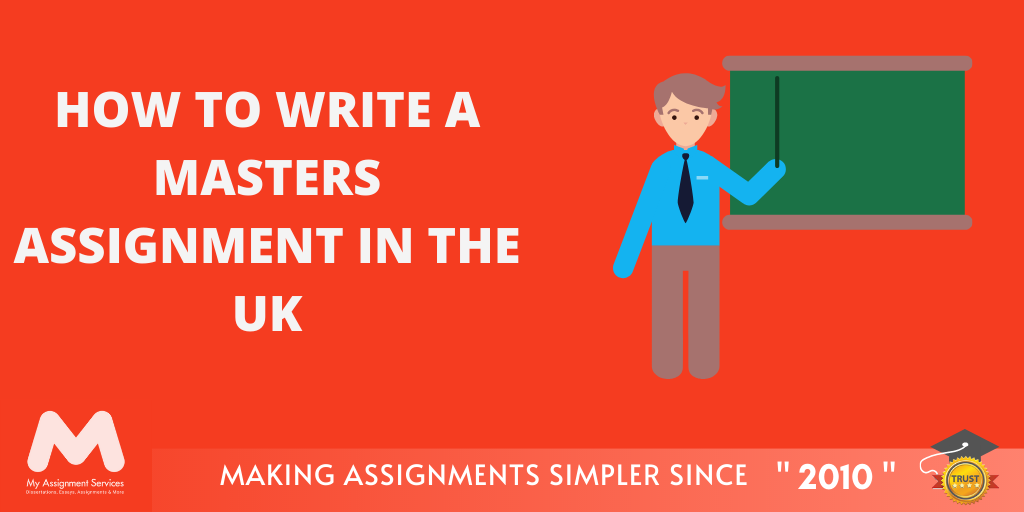
Author : Jeffery
When you are writing a masters assignment, it is important to make sure that you are following the correct format and structure. In addition, you will also need to make sure that your writing is of the highest quality. By following the tips below, you can ensure that your masters assignment will be a success.
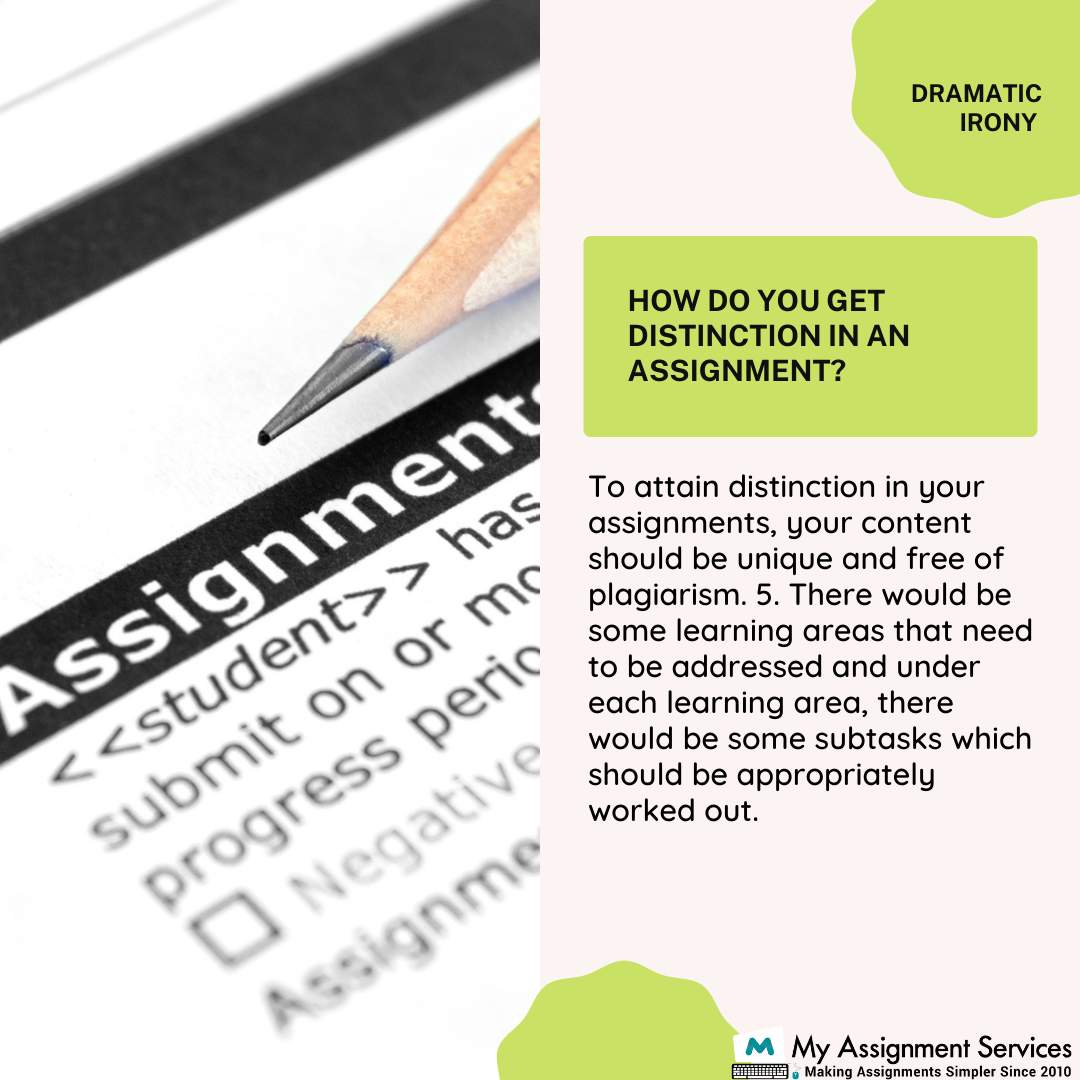
Four Key Focus Areas of Assignment Writing
Formatting: When formatting your masters assignment, you will need to make sure that you are using the correct font, margins, and spacing. The font should be Times New Roman or Arial, and the margin should be 1 inch on all sides. You should also use double spacing throughout your document.
Headings: Your masters assignment should be divided into sections, with each section being represented by a heading. In order to make sure that your headings are easily identifiable, it is important to use different formatting for each heading. For example, you might change the color of one section and not others. Furthermore, your headings should be placed in a logical order.
Footnotes: If you are writing an academic document, then footnotes are likely to appear throughout. The best way to format these would be directly underneath the sentence that they are referencing. These should also be kept to a minimum - only used if absolutely necessary.
Referencing: When you are writing your masters assignment, there is inevitably going to be looking back at past research or other studies already conducted by experts in your field. This will mean that there will need to be some referencing throughout your document. To format this, you will need to include a bibliography at the end of your paper. This should contain all sources used and make sure that they are formatted correctly.
Quality: The most important part of writing a masters assignment is ensuring that it is well written and informative for those reading. Make sure that you take the time to plan what it is that you want to write and then write it in an engaging way using academic language and concepts where necessary. However, do not overuse complex words - only use them if they fit within your sentence perfectly and aren't too long-winded! Finally, ensure that there are no typos or grammatical errors present; even if they seem small amongst such large text, they can still be noticed and will lower the overall quality of your work.
By following these tips, you can ensure that your masters assignment is of the best quality. In addition, make sure to take a look at some of our other resources on academic writing, such as our guide to essay writing or dissertation writing.
Be Careful! Avoid These Common Mistakes While Writing Your Master’s Assignment
When you are writing your masters assignment, it is important to make sure that you avoid making any mistakes. By avoiding the following errors, you can ensure that your paper will be of the highest quality.
Punctuation: One of the most common mistakes that students make when writing their masters assignments is incorrect punctuation. This can include using the wrong type of punctuation mark, or not using them at all. Make sure to read through your document thoroughly and correct any errors.
Spelling: Another common mistake made by students is spelling errors. This can be easily avoided by proofreading your work before submitting it. Make sure to use a spell checker as well, and if possible have someone else proofread it for you.
Grammar: Poor grammar can be a real issue when writing any type of academic document. It is important to make sure that your grammar is correct and that you are using the correct tenses. If you are unsure about your grammar, there are many resources available online which can help you.
Formatting: One of the most important aspects of writing a masters assignment is ensuring that it is correctly formatted. This includes using the correct font, margins, and spacing. Make sure to check the formatting guidelines for your particular institution, as they may differ from those listed above.
Tone: The tone of your paper should be formal and academic throughout. Avoid using informal language or slang terms, as these will not be accepted by your tutor.
Length: It is important to remember that masters assignments should be around 1500 words in length. exceeding this word limit can result in a lower grade. If you find yourself running out of things to say, make sure to focus on the main points and cut out any unnecessary details.
By avoiding these mistakes, you can ensure that your masters assignment will be of the highest quality. In addition, make sure to take a look at some of our other resources on academic writing, such as our guide to essay writing or dissertation writing.
Tips that Ensure Your Higher Education Assignment is Engaging and Informative
When writing your masters assignment, it is important to make sure that it is both informative and attractive to those reading it. To achieve this, you can follow the tips below.
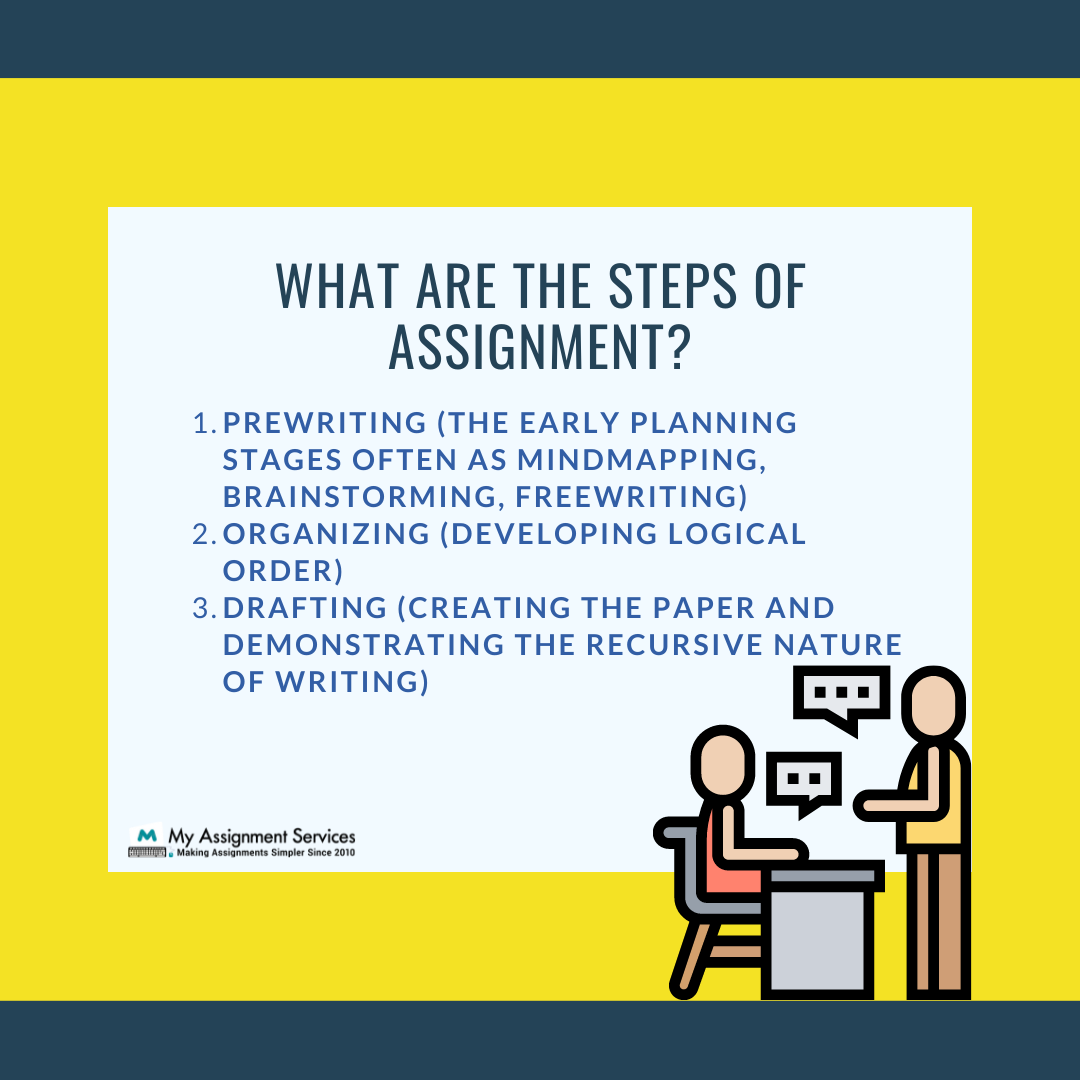
Layout: The layout of your document should be visually appealing and easy to read. Use a clear and concise font, and double-space your text. Make sure to use headings and subheadings to break up your paragraphs, and include graphics or diagrams if possible.
Language: The language that you use in your paper should be clear and easy to understand. Avoid using complex terms or jargon unless necessary, as not everyone will be familiar with them. Make sure to use correct grammar and spelling as well.
Structure: The structure of your paper should be clear and logical. If you are writing a research paper, include an introduction, main body, and conclusion.
UK Masters Assignment Example
When it comes to writing a masters assignment, many students find themselves at a loss for what to do. However, by using a masters assignment example as a guide, you can ensure that your paper will be of the best quality. Below is an example of a masters assignment which has been written by a student in the UK.
Title: The Impact of Social Media on Youth Culture
Introduction: In recent years, social media has become an increasingly important part of youth culture. This essay will explore the impact that social media has had on young people and discuss whether or not it has been positive or negative.
Body: There are many different ways in which social media can have an impact on youth culture. It can allow young people to connect with each other in new ways, but it can also increase feelings of loneliness and isolation. It can be used to create communities based around shared interests, but it may also encourage narcissism and the promotion of unrealistic lifestyles. Social media has made many positive impacts on youth culture; however, it has also had its fair share of negative consequences.
Conclusion: Overall, social media is an incredibly powerful tool which has changed how young people interact with one another. While there are many different ways in which it could have a negative impact on youth culture, social media can also provide many benefits for young people; both online and offline. It all depends on how this technology is used by individuals and groups.
Concluding Lines
By following this guide, you can ensure that your masters assignment will be both informative and appealing to those reading it. In addition, make sure to check out our other resources on academic writing, such as our guide to essay writing or dissertation writing. Good luck! When writing a masters assignment, it is important to make sure that it is of the highest quality. By avoiding the mistakes listed above, you can ensure that your paper will be well-written and error-free. If you are looking for assignment help in UK to complete your Masters assignment, My Assignment Services is the best platform ever! We’ll guide you from scratch to the end. From writing introductions to research methodologies; from video essays to design thinking, we can provide you with one-to-one consultation sessions where you can clarify all your academic doubts. Book your interactive session now !
Our Experts can answer your Assignment questions instantly.
Loved reading this Blog? Share your valuable thoughts in the comment section.
About the Author
I am assignment writing expert and have been associated with My Assignment Services since last five years. I believe that students should get professional help with their assignments so that they can manage both their education and co-curriculum activities simultaneously. Contact me through My Assignment Services for Assignment Assistance.
A Comprehensive Ryanair Case Study Analysis
Related posts.

How To Write An Introduction And Conclusion For An Assignment
May 15, 2024.
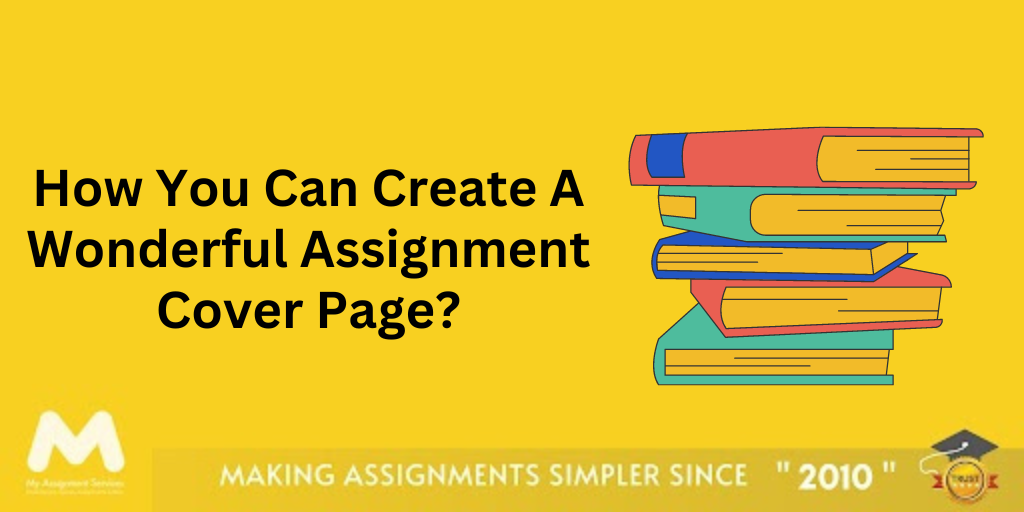
How You Can Create A Wonderful Assignment Cover Page
May 01, 2024.

Let’s Solve Web Application Penetration Testing Assignments Together
December 08, 2023, get it done today.
- Algeria (+213)
- Antigua and barbuda (+1268)
- Australia (+61)
- Austria (+43)
- Azerbaijan (+994)
- Bahrain (+973)
- Bangladesh (+880)
- Canada (+1)
- China (+86)
- Congo (+243)
- Cyprus (+357)
- Europe (+3)
- France (+33)
- Germany (+49)
- Ghana (+233)
- Greece (+30)
- Hong kong (+8)
- Hungary (+36)
- India (+91)
- Indonesia (+62)
- Iran (islamic republic of) (+98)
- Ireland (+353)
- Jamaica (+1)
- Japan (+82)
- Jordan (+962)
- Kazakhstan (+7)
- Kenya (+254)
- Kuwait (+965)
- Latvia (+371)
- Lesotho (+266)
- Malaysia (+60)
- Maldives (+960)
- Malta (+356)
- Mauritius (+230)
- Myanmar (+95)
- Namibia (+264)
- Nepal (+977)
- Netherlands (+31)
- New zealand (+64)
- Nigeria (+234)
- Norway (+47)
- Oman (+968)
- Pakistan (+92)
- Papua new guinea (+675)
- Philippines (+63)
- Poland (+48)
- Qatar (+974)
- Saudi arabia (+966)
- Singapore (+65)
- Somalia (+252)
- South africa (+27)
- South korea (+82)
- Spain (+34)
- Sri lanka (+94)
- Sweden (+46)
- Switzerland (+41)
- Taiwan (+886)
- Thailand (+66)
- Turkey (+90)
- Uganda (+256)
- Ukraine (+380)
- United arab emirates (+971)
- United kingdom (+44)
- United states america (+1)
- Uzbekistan (+998)
- Vietnam (+84)
- Yemen (+967)
- Zambia (+260)
- Zimbabwe (+263)
1,212,718 Orders
4.9/5 Rating
5,063 Experts

- 21 Step Quality Check
- 2000+ Ph.D Experts
- Live Expert Sessions
- Dedicated App
- Earn while you Learn with us
- Confidentiality Agreement
- Money Back Guarantee
- Customer Feedback
Just Pay for your Assignment
Turnitin Report
Proofreading and Editing
Consultation with Expert
- Let's Start
Other Subjects
Get 500 Words Free on your assignment today
Trending now
Top 50 Childhood Studies Dissertation Topic Ideas
16 social work dissertation topics that would build awesome dissertations, project management reflective essay example, how to write a literature-based dissertation, mischief managed with dissertation literature review examples, how to write a library-based dissertation, 4nh026: human life journey nursing assignment answer, how to write a case study on a patient, how to write a conclusion for geography coursework, 30 best cloud computing dissertation topics, computer science dissertation example- tool to write perfect dissertations, 5 tips to write data analysis dissertation example.
The Student Corner
Subscribe to get updates, offers and assignment tips right in your inbox.
Popular Posts
- Dissertation Top 50 Childhood Studies Dissertation Topic Ideas Jacob July 16, 2021
- Dissertation 16 Social Work Dissertation Topics That Would Build Awesome Dissertations Jeffery January 07, 2019
- Essay Writing Project Management Reflective Essay Example Sofia February 01, 2021
- Dissertation How to write a literature-based dissertation? Jessy July 08, 2021
- Dissertation Mischief Managed with Dissertation Literature Review Examples Jeffery January 29, 2019
- Dissertation How to Write a Library-Based Dissertation? Jacob June 27, 2021
Request Callback
Searching across 1 Million Resources...
Doing your Assignment with our resources is simple, take Expert assistance to ensure HD Grades. Here you Go....

- About nurtureuk
- Meet the Team
- Happy In School
- Campaigning for Change
- What is nurture?
- Whole-School Approach to Nurture
- International Journal of Nurture in Education
- Training and Events
- The National Nurturing Schools Programme
- Nurture Groups
- The Boxall Profile®
- Senior Mental Health Leads Training
- Inclusive and Nurturing Schools Programme
- Nurturing Kent Programme
- London Violence Reduction Programme
- Kent Violence Reduction Programme
- Our Platforms
- Work with us

- Book a course
Top tips for assignment completion
Next available dates
Top Tips for Assignment Completion! (Free) – 6th August 2024 6pm-7pm
Top tips for assignment completion (free) – 6 november 2024 6pm-7pm.
Course details
Duration: 1 hour Time: see individual event Fee: free webinar Format: online via Zoom Group size: maximum 50
Course overview
This one-hour webinar will cover the elements of the assignment for the Theory and Practice of Nurture Groups training course.
After the event attendees will receive: • PDF copy of the webinar script Delegates must have completed the Theory and Practice of Nurture Groups training course and be within the time frame to submit an assignment.
During the session, the host will share their screen and audio. Attendees are view-only participants. They can interact with the host through chat. The host reserves the rights to hold the recording and audio footage.
What about costs? We recognise the financial uncertainty that individuals and organisations are facing due to COVID-19. As a result, we have heavily reduced the price of webinars with some being available for free.
Please note that nurtureuk is a charity and non-profit organisation. Fees to participate will be used to cover all costs related to this event while supporting our work to improve children's lives.
If you wish to support our charity further and help us continue to improve children's lives, we'd be grateful for any donations via Give As You Live . Thank you very much.
What will I learn?
It will take attendees through each section of the assignment and provide top tips for:
Part One : Child Study Part Two : Reflection Part Three : Portfolio
Assessment and certificates
There are no certificates for attendance of this webinar.
Eligibility
Attendees will need to have attended our 3-day course The Theory and Practice of Nurture Groups .
You may also be interested in..
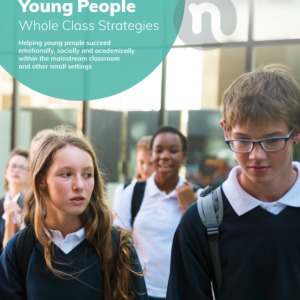
Beyond the Boxall Profile® for Young People: Whole-Class Strategies (for Secondary settings)
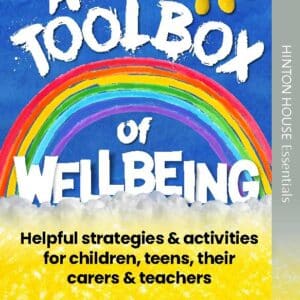
A Toolbox of Wellbeing

Murry the Worry Bunny

Transition Tool Box

Nurture groups in schools: Principles and practice
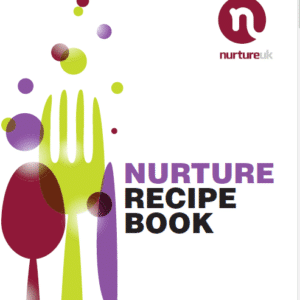
Nurture Recipe Book
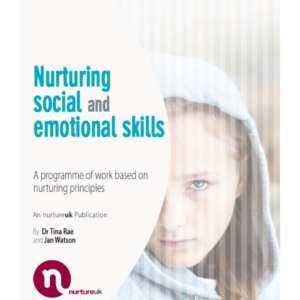
Nurturing Social & Emotional Skills
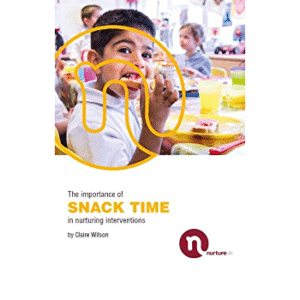
Establishing a secondary nurture group
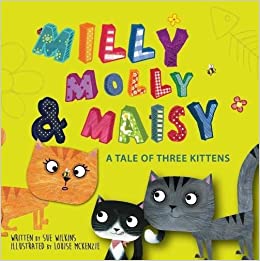
Milly, Molly & Maisy – A tale of three kittens

Nurture Groups in school and at home

Affirmation Cards
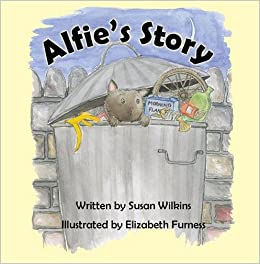
Alfie’s Story
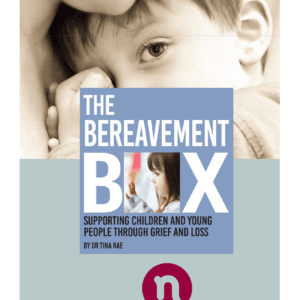
Bereavement Box
Blog Ofsted: schools and further education & skills (FES)
https://educationinspection.blog.gov.uk/2024/05/24/tips-and-insights-for-applying-to-the-online-education-accreditation-scheme/
- Tips and insights for applying to the Online Education Accreditation Scheme

A year has passed since the Department for Education (DfE) launched the Online Education Accreditation Scheme (OEAS) . The scheme provides a route for providers of full-time online education to apply to the DfE for accreditation.
In this blog, we’ll provide some tips that might help you if you’re considering applying for the scheme. We’ll also include comments from providers who have already been accredited.
Ofsted’s role
Ofsted’s role in the scheme is to:
- receive applications from DfE and check the applicants are eligible and should progress to the next stage of the process
- run suitability checks on applicants
- if the applicants are suitable, carry out an accreditation visit to assess whether the provider meets the online education standards,
- publish a report setting out whether the provider meets the standards so that DfE can decide whether to award accreditation to them
We have now published data on our work during the first year of the scheme .
Tips for applicants
Curriculum policies, plans and schemes of work.
If Ofsted receives your application from the DfE, we will contact you by email to ask for more information. Our handbook for accreditation visits lists the subjects we will need more information on. One of the items is the curriculum policy, plans and schemes of work. You must have these things, under standard 1.1 of the online education standards .
You should make sure that your curriculum policy, plans and schemes of work cover all of the curriculum areas required by the standards. For example, if your documents make no reference to subjects such as maths, physical education, creative education, or technological education:
- you would likely fail to meet standard 1.1
- you could end up paying for an accreditation visit but not be accredited.
Presence in England
The DfE’s guidance on the scheme says that, to be eligible, you must have a physical presence in England. This must be where ‘a substantial part of the provider’s leadership or staff operate’ and ‘a suitable place for Ofsted to undertake a two-day accreditation visit’.
If you have pupils or staff members based outside England, you should make sure that the headquarters of your operations in England meet these criteria. You should be ready to explain which elements of your service (if any) are delivered from addresses outside England. This will make sure we can effectively prepare for an accreditation visit.
Robust safeguarding policy that deals with online context of the provision
The DfE’s guidance notes that ‘to meet standard 4.1, a provider must have a comprehensive safeguarding policy drawn up with reference to their particular context’.
This means that you should give careful thought to your online context. You should also consider how the guidance set out in Keeping Children Safe in Education and Working Together to Safeguard Children applies to your provision. Since these documents are updated regularly, you need to make sure that your policies (and training based on them) take account of the latest updates.
Determine who is a ‘proprietor’ and register for the Disclosure and Barring Service update service
We carry out a range of checks on proprietors of online providers, including Disclosure and Barring Service (DBS) checks. Some applications for accreditation have been delayed because of:
- uncertainty about who meets the definition of ‘proprietor’ and who has decision-making responsibilities in practice
- out-of-date DBS checks
As our handbook notes, ‘If an applicant’s DBS certificate has been issued over 3 months prior to the application, it must be registered on the DBS update service.’ If your DBS certificate does not meet this criterion, you will be asked to apply for a new one. Once issued, you will be asked to send your DBS certificate(s) to us by post.
In order to ensure that checks are not delayed, we would encourage you to determine who the proprietors are before applying, and to ensure that they are registered with the DBS update service.
Feedback from accredited providers
We spoke to the three providers who have been accredited up to 31 March 2024. We asked them what the effect of applying has been on their pupils and their provision more generally.
How has the process impacted on provision for your pupils?
The OEAS process was an opportunity to reflect on our provision and have Ofsted inspectors engage with our client schools and students, to examine the impact of our partnership approach. The feedback received from Ofsted and the feedback that was shared during our visit by students and schools has already helped to shape how we develop our service in future. – ACADEMY21
Our priority has always been the highest standard of education for our students, and so this has not changed with our accreditation, but it does validate to us, and our families, that the quality of education we offer is comparable to a ‘live’ UK school. In the short-term, it has meant that we are now able to offer Local Authority Alternative Provision to those students for whom online school is a lifeline. Moving forward, we will begin our A-Level journey in 2024/25 and accreditation has given us the opportunity to attract high-calibre teachers to support this. – SOPHIA HIGH SCHOOL
We constantly reflect and develop our provision. This process has led us to expand our opportunities for group learning and peer engagement at the beginning and end of the day with a breakfast club before the first lesson and wider choice of enrichment opportunities. We have also expanded our teacher base for wider specialisms and developed the platform that we deliver our lessons through to offer more opportunities for interaction. – TCES
What was the experience of being visited by Ofsted like? What did you think upon reading the report for the first time?
We have strongly advocated for the accreditation of online education and were especially pleased with the rigour and forensic nature of the two-day accreditation. We believe that this rigour will ensure that only providers who have the children at the very centre of their provision will be successful in gaining accreditation. Reading the report was an incredible experience for the whole team. Seeing recognition of our ‘strong moral purpose’ and acknowledgement that we ‘work tirelessly to identify, reduce and often eliminate the barriers to learning’ was uplifting for everyone concerned, particularly the teachers who work remotely and miss out on some of the natural team building experiences that you would expect at an onsite school. – TCES
We love an inspection! We value feedback in all forms, and this gave us the perfect opportunity to show inspectors what we do every day. Our visit involved the two inspectors being hosted at our physical Head Office, and then being given access to live online lessons, and video recordings of live lessons, via our secure platform. As expected, there were online surveys for students, parents and teachers, followed during the visit by confidential discussion sessions with these groups. Throughout the visit, Q&A sessions were scheduled with the leadership team for clarification of points, evidence-building and further discussion. The anticipation of the final report was palpable with the team, and when it finally arrived we were thrilled to have such a comprehensive validation of the work we do, and felt that it did capture the essence of what life is like at Sophia High School. – SOPHIA HIGH SCHOOL
We were delighted with our report, it captured many of the strengths of our provision – our expertise, our people and most of all the student experience delivered live by engaging teachers though a bespoke system. We were pleased to see the impact of our provision recognised too. For example the inspectors recognised that we ensure students do not drop out of education and enable them to make academic progress. Equally, the team picked out that our approach leads to reintegration back into ‘bricks and mortar’ schools. We were also appreciative of the rigour of the inspection team. The 2-day visit was conducted with a genuine spirit of inquiry by the Ofsted team but the questions asked were rigorous – as they should be. We ended feeling like our provision had been thoroughly understood and evaluated. – ACADEMY21
What tips would you give to other online education providers who are considering whether to apply for accreditation? Is there anything you wished you had known in advance?
We urge all online education providers to consider applying. The OEAS documentation is clear. It gives guidelines, expectations and non-negotiables. If your practice is solid and follows the guidance then you have nothing to worry about. For our team, working through it with rigour gave us clarity in what we do and where we know we are going, and so we felt well-prepared. – SOPHIA HIGH SCHOOL
Preparation is key. The standards are detailed and give the opportunity to really evaluate your service. It is worth making sure you have worked through the initial guidance thoroughly. It is important to use your whole team to ensure you capture everything your provision offers but also demonstrate the strength in depth and whole range of expertise. – ACADEMY21
Don’t view applying for accreditation as an easy route to proving quality of provision! The accreditation process, including the two-day visit, is rigorous and detailed and you need to be providing a high-quality, full-time online education that expertly supports children and young people. – TCES
Sharing and comments
Share this page, related content and links, about 'ofsted blog: schools and further education and skills'.
This blog will look at the way Ofsted inspects education in schools and the further education and skills sector. It will update you on developments and feature current issues.
Sign up and manage updates
- Ofsted on Twitter
- Ofsted on LinkedIn
- Ofsted on YouTube
- Ofsted's Slideshare presentations
Recent Posts
- Our approach to inspecting small schools
- Improving school attendance
- How we inspect safeguarding in schools
- School inspection update September 2023 - changes to how we inspect schools
- November 2023
- September 2023
- August 2023
- February 2023
- December 2022
- November 2022
- September 2022
- February 2022
- December 2021
- November 2021
- September 2021
- February 2021
- January 2021
- September 2020
- February 2020
- January 2020
- December 2019
- November 2019
- October 2019
- September 2019
- August 2019
- February 2019
- January 2019
- December 2018
- November 2018
- October 2018
- September 2018
- August 2018
- January 2018
- December 2017
- November 2017
- October 2017
- September 2017
- August 2017
- February 2017
- January 2017
- December 2016
- November 2016
- September 2016
- August 2016
- February 2016
- January 2016
- December 2015
- November 2015
- August 2015
Comments and moderation
CMA issues tips for pet owners as its announces full market investigation into the UK vet sector
There are 16 million households with a pet, many of which have been struggling to pay vet bills, potentially overpaying for medicines and potentially don't know the best treatment options available, the competition watchdog says.

Business reporter @taaffems
Thursday 23 May 2024 08:30, UK

The UK's competition regulator has issued tips for pet owners amid concerns they are paying too much on vet bills and are not given enough information about treatment options.
It follows a March update of a review into the UK's £5bn veterinary services industry by the Competition and Markets Authority (CMA), which said pet owners could be paying too much for medicines or prescriptions.
Money latest: These are the cheapest (and most expensive) cars to insure
The watchdog on Thursday said it was launching a full market investigation into the UK's veterinary sector and advised animal owners to:
• Shop around for a vet and don't always go to the closest one
• Ask the vet if there are other treatment options
• Think about buying medication from places other than your vet if it's not an emergency
About 60% of vet practices now belong to large companies, up from 10% a decade ago - almost 90% of vets in the UK were independent in 2013. The six large corporate vet groups in the UK are CVS, IVC, Linnaeus, Medivet, Pets at Home, and VetPartners.

Keep up with all the latest news from the UK and around the world by following Sky News
Key regulatory concerns
The CMA said it had five key concerns: whether consumers are getting the right information at the right time to make informed decisions; how limited choice in some areas is impacting pet owners; whether vet profits are consistent with "levels expected in a competitive market"; if vets are incentivised and able to limit choice when providing treatments or recommendations - particularly when they are part of large vet groups; and if the regulation is preventing the market functioning as well as it could.
"The message from our vets work so far has been loud and clear - many pet owners and professionals have concerns that need further investigation," Sarah Cardell, chief executive of the CMA, said.
"We've heard from people who are struggling to pay vet bills, potentially overpaying for medicines and don't always know the best treatment options available to them."
Roughly 16 million UK households have pets, the CMA added.
Please use Chrome browser for a more accessible video player

A full market investigation
The first few months of the investigation will focus on gathering and analysing more evidence from a wide range of interested parties.
Since the sector review started in September, the CMA received 56,000 responses to its call from pet owners and vet industry workers.
Be the first to get Breaking News
Install the Sky News app for free

The full investigation will take time, said Martin Coleman, the chair of the inquiry group.
"Market investigations are, by their nature, comprehensive and complex," he said.
"They require time to fully explore concerns and to ensure that all points of view are heard so we can reach the right outcomes and take appropriate action, if needed, to make the market work for everyone."
Stunning European city with pints five times cheaper than the UK
If you fancy a beer for just 79p, then a trip to central Europe could be well worth considering - and there's a whole lot more to Hungary that the great value bars

- 08:54, 26 May 2024
Europe's cheapest city for a pint continues to sell beer for five times less than the UK average - and is just a quick good-value flight away.
In Hungary’s Northern Great Plain region, Debrecen doesn't just offer low cost drinks. It's a fantastic weekend get-away and if you plan right, it could be the biggest bargain trip of your life. According to best-price finder Skyscanner, you can travel from Luton Airport to the city from as little as just £23 for a return flight if you go at the right time of the year.
It's well under three hours away and it is known as Europe's cheap pint capital for a reason. Thirsty visitors to the Hungarian city can grab a Soproni lager for just 79p with the average lager setting you back 82p. That is a full 6.6 times cheaper than the average price of a pint in London, where the average drink now sets you back an upsetting £5.90.
Even Derby - the UK's cheap place to grab a pint according to one study - can't match the prices, with the average charge in the Midlands city £3. Debrecen isn't just a great place to enjoy a drink however, but a fascinating city in its own right. The bustling university town has a large yellow cathedral Reformatus Nagytemplom, an extensive museum of Hungarian culture, a zoo and a theme park.
The inflationary pressures of the past couple of years has had a big impact on the costs of alcoholic drinks in the UK. Figures from the Office for National Statistics released last year showed that the average cost of a pint of draught lager in a pub increased 12.1% between August 2022 and August 2023, from £4.12 to £4.65. With wages failing to keep pace for many, spending an evening at the pub may begin to feel like a luxury.
The good news is that Debrecen is not the only place you can pick up an incredible value pint in Europe, and we've detailed a few hot spots here. But if you want to avoid the destinations where you'll be charged the earth for a beer then you'll want to steer clear of Iceland - a beer now costs and average of £8.33 a pop!
Puerto de la Cruz, Tenerife - £1.60
An oldie but a goodie, this Canary Island classic continues to provide bang for your buck. And with sweeping sea views, a serene atmosphere and dirt cheap pints, there are no surprises why. If you travel in June before the school summer holidays you will find good weather as well as great value for money in-destination, all while avoiding peak season airfares and hotel charges.
Faro, Portugal - £2.18 a pint
The Algarve is synonymous with azure waters, sunshine, delicious food and affordable drinking boltholes. Consider Faro for your next European break for wallet friendly price tags on flights, hotel stays, and in-destination costs - beers start at a mere £2.
Zagreb, Croatia - £2.44 a pint
Zagreb brings to mind sandy beaches by day and partying with friends by night thanks to an attractively low price per pint, just £2.44. Avoid the school holidays and visit in May-June to take advantage of the best savings.
MORE ON Travel Tips
Can we send you the mirror travel newsletter with weekly travel news and inspiration.

- How It Works
- How to Elevate Your Academic Success Through Ex...
- Mastering Assignment Writing: Your Ultimate Gui...
- Unlock Your Academic Potential: Affordable Assi...
- 9 Easy Steps: How to Write a Good Essay - Top E...
- Paying for Analytical Essay Help: Expert Tips &...
- How Professional Editing Can Elevate Your Acade...
- Mastering Assignment Writing: Tips for Academic...
- Brighton and Hove
- Southampton
- Stoke-on-Trent
- Wolverhampton
- Resources General Guides Portal Help

We use cookies to give you the best experience on our website. By continuing you agree with our cookie policy .
- Essay Services
- Dissertation Services
- Assignment Service
- Admission Service
- Coursework Service
- Copywriting Service
- Editing Services
- Proofreading Services
- Our Writers
- How It Works
- Assignment Writer
Best Assignment Writers Are Here
Experts are online now
- Verified writers
- On-time delivery
- Safe & secure
Price per page : £0.00
Total price: £ 0 .00 £ 0 .00
Professional Assignment Writers Available for Every Student
Are you a student looking for an assignment writer to help you with your academic writing? Are you studying in the UK and looking for a British assignment writer who speaks English as a first language and understands how to UK educational system works?
If you answered yes to the above questions, then you are in the right place. UKWritings.com is the leading British assignment writing service, hiring only assignment writers UK (which means they are based in the UK and have academic qualifications from UK universities).
Liam reviewed UKWritings:
I’ve used online writing services before but I’ve never had one this good. The ordering process was really easy and as promised, the quote I was given was my full price. No added extras to release my assignment. It was written well by to assignment writers and all of the key points where covered and fully explained.
Rating: 5 /5
Tell the world about your experience with assignment writers, write your review to help others learn about UKWritings.com. Our service is rated 5 based on 464 votes.
Where to Find an Assignment Writer
You will find extensive information at UKWritings.com about each of our assignment writers, including their academic qualifications, their areas of expertise and their customer feedback score.
We don’t believe in hiding our writers away. They are the backbone of our services and we want you, the customer, to be able to see our writers and what they can do. We are proud of each online assignment writer we hire and we are happy for you to see them and ask them questions to ensure you choose the perfect writer for you and your assignment.
Why Is It So Difficult for Students to Write Assignments?
Academic style writing is hard. It is hard to get the assignment to flow well and be engaging to the reader whilst also ensuring you get all of the relevant information in there.
This is a skill which takes practice, and most students have enough things to do without having to sit writing practice assignments. Our writers write assignments all day long. They are expert academic writers who know the structure of a perfect assignment and can make even the most boring of topics come to life.
You Can Find Quality Help Here
UKWritings.com want all of our customers to be happy with their assignments. For this reason, we take great care to ensure we only hire the best custom assignment writer.
All of our assignments are high-quality papers that are written from scratch with no plagiarism and will never be resold. We only use reputable sources in our research and our customer feedback backs up our claims of being the best.
We have a high level of return customers, which we believe is the best way to show you the quality of our work – people wouldn’t return if the assignments we write weren’t good quality.
To see the quality of the writing for yourself, check out our sample essays (there are not customer essays – we would never display your essay as a sample essay).
Why Choose UKWritings.com?
If you’re looking for the best British assignment writer who can provide you with a high-quality assignment at a low price, you should choose UKWritings.com.
You might find cheaper services out there, but you won’t find a better balance of affordable prices and quality assignment writing.
Order Now with Our Simple Ordering System
To order an assignment from a top assignment writer, just fill out the simple order form. Make sure to fill out all of the required information boxes, and then you can choose to give us as much or as little extra information as you wish. Our writers are happy to incorporate your ideas and are equally happy to write you a winning paper without any guidance.
You can then browse through the UKWritings.com assignment writer page and choose the writer who you believe is the best match for your assignment. If you are unsure which of our writers is the best one for you, you can message them and ask them questions.
Or of course, you can skip this step and we will select the best assignment writer for your assignment based on their areas of expert knowledge and their academic qualifications.
You can, at any time, check your order’s progress by logging in to your dashboard and selecting the relevant assignment. You can also message your writer though this page to provide any additional information.
Finally, you need to approve your paper. Once it’s approved, all that’s left to do is download the paper and hand it in.
So basically, you can sit back and relax knowing you are on for the highest grade through UKWritings.com.

- Limitless Amendments
- Bibliography
- Plagiarism Report
Timely delivery is among our core guarantees. We offer:
- Urgent paper writing (3 hours+)
- Draft delivery upon your request
- Final paper delivery before your deadline
UKwritings guarantee the privacy of all the customers and never share their personal information with third parties. For more details read our Privacy Policy.
Dissertation, 5 days, Master's
UKWritings made my dissertation journey smooth. The assigned writer was an expert and their systematic approach ensured every aspect was handled meticulously. Communication was consistent and collaborative, resulting in a logically structured and ...
Case Study, 7 days, Undergraduate
My encounter with UKWritings has set a benchmark for excellence. Faced with a complex case study, I turned to them for assistance. The writer's expertise was evident, resulting in a well-analysed and insightful case study. The final piece not only...
Essay, 5 days, HNC/HND
Ukwritings.com nailed my assignment. They captured my thoughts and delivered before the deadline. The writer was attentive to every single detail. Highly recommend it!
Research paper, 6 days, Doctoral
UKWritings helped me complete a research paper on time and to a high standard. Their expert guidance and responsiveness to feedback made the process seamless. Thanks to their support, I achieved an excellent grade. Highly recommend!
Dissertation, 6 days, Master's
My experience has been nothing short of excellent. They exceeded all my expectations. The research was thorough and my advisor was pleased. UK Writings delivers great value for such a reasonable price.
- Write My Essay
- Custom Essay
- Buy Dissertation
- Write My Dissertation
- PhD Writers
- Assignment Help
- Do My Assignment
- Buy Assignment
- Cheap Assignment
- Dissertation Help
- Literature Review
- Coursework Help
- Do My Coursework
- Personal Statement Help
- Nursing Essay
- Management Essay
- History Essay
- Finance Essay
- English Essay
- Sociology Essay
- Marketing Essay
- Economics Essay

I'm phone expert - these tips will keep phone bill down this summer
- A survey by Lyca Mobile found a third of Brits run up a £118 phone bill on holiday
- Lyca's Country Manager, James McQuillan, issues five tips to avoid sky-high fees
- READ MORE: Holiday firm offers Brits FREE mobile data to avoid roaming fees
A leading phone expert has revealed five essential tips for slashing mobile phone bills while on holiday this summer.
It comes as new research by Lyca Mobile has found that a third of Britons have racked up huge phone bills while abroad - costing an average of £118.
The study by Lyca Mobile uncovered that many holidaymakers heavily rely on their phones for everyday tasks such as checking the weather (45 per cent) and finding directions to local attractions or restaurants (also 45 per cent).
With a quarter of travellers using their phones to browse and update their feeds, while over half of respondents admit they can't imagine going on holiday without their phones, it's clear that staying connected is a priority.
James McQuillan, UK & Ireland Country Manager at Lyca Mobile, said: 'It is outrageous that, at £118, our very British holiday phone bills might now cost as much as our flights. Holidaymakers should not have to worry about connectivity coming at a cost.'
Read on to discover five top tips shared by the phone expert so you can continue to enjoy using your phone while on holiday - without breaking the bank.
1. Go roaming
According to McQuillan, it's recommended to choose a provider that still includes free roaming in the EU (and sometimes other destinations).
This can save significant costs compared to using a provider that charges for roaming.
2. Add a Bolt-On
If your plan doesn’t include roaming, many providers offer it as a bolt-on feature for a fee, which can be more economical than pay-as-you-go rates.
3. Get a local SIM
Upon arrival, McQuillan advises holidaymakers to purchase a local SIM card with enough data to last your trip.
The expert added: 'eSIMs are a convenient option to get online quickly while keeping your UK number.'
4. Restrict usage
McQuillan said: 'While our phones are essential on holiday there are ways to restrict usage.'
He suggests to make use of Wi-Fi wherever possible and limit the amount of time spent online to minimise data usage.
Simple habits like these can drastically reduce costs while using your phone abroad.
5. Switch off roaming
To avoid accidental daily roaming charges or unexpected high bills, turn off roaming altogether if it isn't included in your plan.
This simple step can prevent unexpected costs from piling up.
With careful planning and smart usage, Britons have the opportunity to enjoy a well-connected holiday without the financial sting of high phone bills.

Cookies on GOV.UK
We use some essential cookies to make this website work.
We’d like to set additional cookies to understand how you use GOV.UK, remember your settings and improve government services.
We also use cookies set by other sites to help us deliver content from their services.
You have accepted additional cookies. You can change your cookie settings at any time.
You have rejected additional cookies. You can change your cookie settings at any time.
- Business and industry
- Business regulation
- Consumer rights and issues
Choosing a vet practice and treatments for your pet
Getting a fair deal when choosing a vet practice and treatments for your pet.
More information about our work in the vets sector is available on the CMA’s case page:
- Market investigation into veterinary services for household pets
Is this page useful?
- Yes this page is useful
- No this page is not useful
Help us improve GOV.UK
Don’t include personal or financial information like your National Insurance number or credit card details.
To help us improve GOV.UK, we’d like to know more about your visit today. Please fill in this survey (opens in a new tab) .

IMAGES
VIDEO
COMMENTS
Make sure you recap the key points and arguments you made in your assignment, including supporting evidence if needed. Expert tip: Make sure that you don't introduce any new ideas in your conclusion; this section is purely for summarising your previous arguments. 9. Getting over writer's block.
Here are five tips to help you get ahead. 1. Use available sources of information. Beyond instructions and deadlines, lecturers make available an increasing number of resources. But students often ...
1. Read the assignment title and instructions very carefully Begin by analysing the assignment title so that are sure you know exactly what is being asked of you. It is not enough simply to know the gist of what the question is about. An assignment will normally ask you to answer a specific question, not to write generally.
A good conclusion will leave a lasting impression on the examiner, so make it count. Top tip: - Recap the key points in your assignment, including supporting evidence if needed. 4. Drafting. Ask your teacher for feedback by submitting the first draft of your assignment a few weeks before the final hand-in date.
It should: 1. Answer the question - not the one you want to answer but then one that's been asked. 2. Identify and address key issues raised by the question and its topic area. 3. Stay relevant to the question and not waffle. 4. Be analytical and discursive rather than merely descriptive.
Welcome to my YouTube channel! In this video guide, I provide international students studying in UK universities with essential tips and insights to complete...
Excellent tips. I think online tutors can also help. Online assignment help can be the best choice for students who want to improve their grades and get an academic edge. Students can now get online assignment help from experts in any subject on platforms like Sweetstudy or Homeworkmarket. They can also find online tutor for math assignments ...
is right or wrong, so write the assignment in whichever order feels best for you. The introduction might be up to around 10% of the word count (e.g. up to 200 words for a 2000 word assignment). Don't forget your conclusion At the end of the assignment, you need to summarise the key points you've made. You won't be introducing
As a rule, academic work should have an introduction, main body and conclusion. This is usually split at 10% - 80% - 10%. So, as an example a 2,500-word assignment will have 250 words allocated for the Introduction and Conclusion with 2,000 words remaining for the main body (+-10% allowance). Once you have all the information and know what to ...
Getting to grips with the expectations for an assignment can take a lot of back-and-forth: read the prompt or title; jot down some ideas; take a walk; revisit the prompt to highlight key phrases; read a couple journal articles; and so on. Please don't expect to read the essay title and immediately sit down to write a focused rough draft.
Assignment tips. The Library Services pages will provide you with lots of advice that you may find helpful when approaching an assignment. ... London SW7 2AZ, UK tel: +44 (0)20 7589 5111 Campuses & maps Follow Imperial. Facebook Twitter You Tube Linked in Instagram Weibo. Site Information. Sitemap;
Introduction to 'Planning and preparing to write assignments'. This handbook on preparing to write assignments is designed to help you develop your strategies for planning. Hopefully, it will help you to get the most out of your experience of writing at University and provide encouragement for managing this type of assessment.
Watch this video if you are planning to come to the UK for Uni and want to know how to do assignments and get very good grades. Please follow our website for...
Unlock the strategy on How to do assignments in UK universities. Follow our expert tips to excel in your academic and upgrade your grades.
Here few key steps to understand and prepare an assignment in UK universities to get good marks.#uklife #ukstudentlife #ukstudy #assignment
Students always struggle to complete their assignments in the UK, which plays a pivotal role in their academic careers. An assignment is not just a task but an opportunity to showcase your skills, knowledge, and critical thinking. While thinking of how to write assignment in UK, you must follow specific guidelines and expectations.
It is a crucial part of the dissertation, as it is the last impression that the reader will have of your work. Writing a strong conclusion is not an easy task, and many students struggle with it. Dive into our extensive collection of academic guides covering essays, dissertations, coursework, and more. Expert advice and tips at UK Assignments.
Ofqual and Exam Boards have developed more top tips and advice to help students manage exam stress: Coping with exam pressure - a guide for students - GOV.UK (www.gov.uk) Ofqual - resources to help students prepare for exams and assessments AQA | Student and parent support | Managing exam stress Exam stress and wellbeing | Pearson UK
Mastering Assignment Writing: Tips for Academic... Belfast. Birmingham. Bradford. Brighton and Hove. Bristol. Cardiff. Coventry. Derby. Glasgow. Leeds. Leicester. Liverpool. London. Luton. Manchester. Newcastle. ... UK-Assignments will not reveal any client's details to 3rd parties unless required by law. No one will know if you have employed ...
Four Key Focus Areas of Assignment Writing. Formatting: When formatting your masters assignment, you will need to make sure that you are using the correct font, margins, and spacing. The font should be Times New Roman or Arial, and the margin should be 1 inch on all sides. You should also use double spacing throughout your document.
Top Tips for Assignment Completion! (Free) - 6th August 2024 6pm-7pm. Top Tips for Assignment Completion! (Free) - 6 November 2024 6pm-7pm. Course details. What will I learn? This one-hour webinar will cover the elements of the assignment for the Theory and Practice of Nurture Groups training course. Delegates must have completed the Theory ...
Tips for applicants Curriculum policies, plans and schemes of work. If Ofsted receives your application from the DfE, we will contact you by email to ask for more information. Our handbook for accreditation visits lists the subjects we will need more information on. One of the items is the curriculum policy, plans and schemes of work.
Update: Unfortunately due to a large amount of DMs I am unable to reply to each one of you individually. Hence I have created a link where you can buy my dis...
CMA issues tips for pet owners as its announces full market investigation into the UK vet sector. There are 16 million households with a pet, many of which have been struggling to pay vet bills ...
Even Derby - the UK's cheap place to grab a pint according to one study - can't match the prices, with the average charge in the Midlands city £3. Debrecen isn't just a great place to enjoy a ...
Sign In. Assignment Coursework Help Dissertation Writing Essay Writing Help Homework Management Proofreading and Editing Subjects Cities. Experience Research Writers: Top-Notch Masters ... 8 steps to write a book report efficiently. How to Elevate Your Academic Success Through Ex...
Order Now with Our Simple Ordering System. To order an assignment from a top assignment writer, just fill out the simple order form. Make sure to fill out all of the required information boxes, and then you can choose to give us as much or as little extra information as you wish. Our writers are happy to incorporate your ideas and are equally ...
James McQuillan, UK & Ireland Country Manager at Lyca Mobile, reveals five tips for slashing phone bills while on holiday this summer - as it's revealed Brits rack up an average bill of £118 ...
Government activity Departments. Departments, agencies and public bodies. News. News stories, speeches, letters and notices. Guidance and regulation
The 2024 French Open is here, and as the main draw gets underway this weekend, and ahead of the second tennis grand slam tournament of the year, The Sporting News has all the best bets, tips and ...